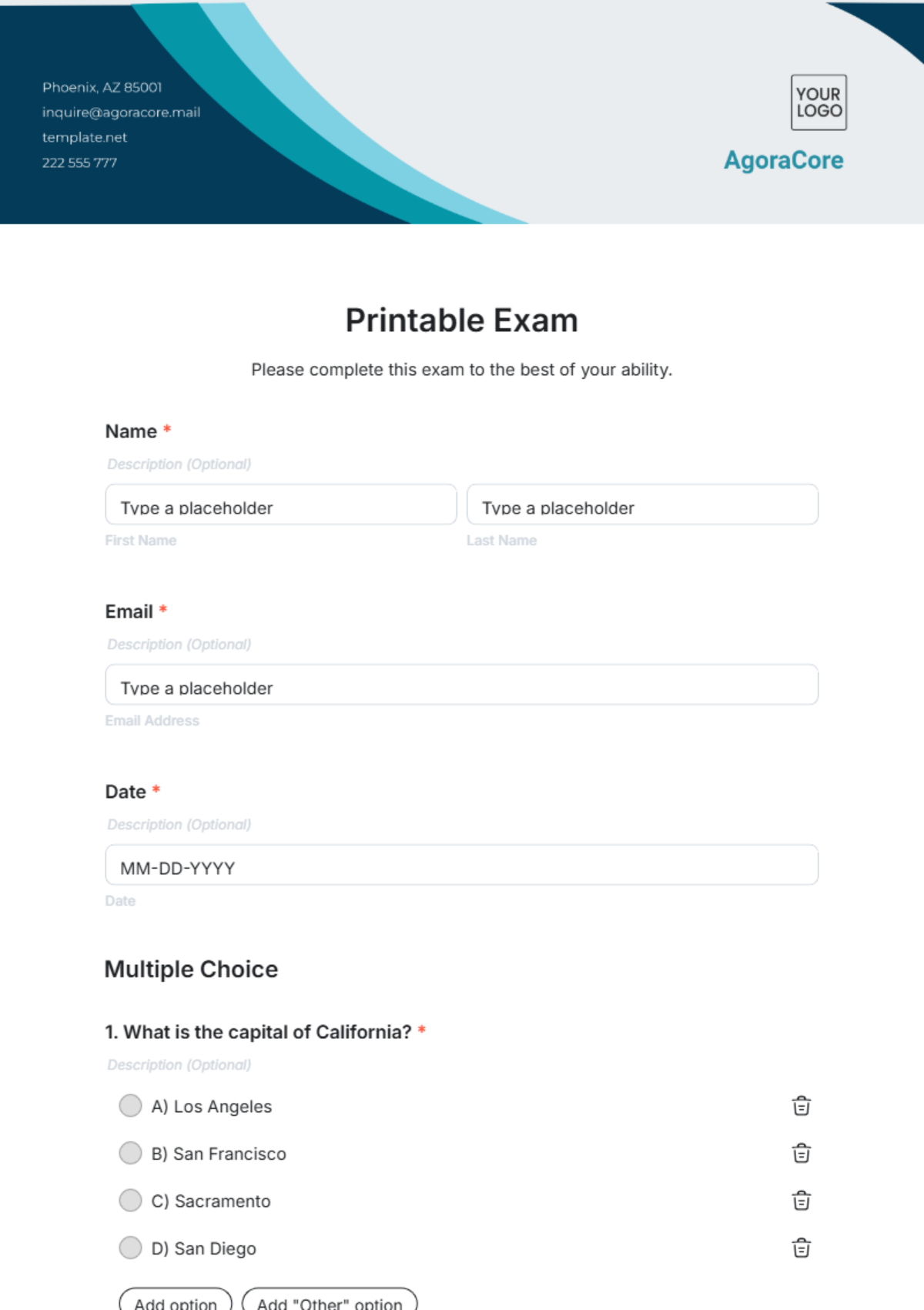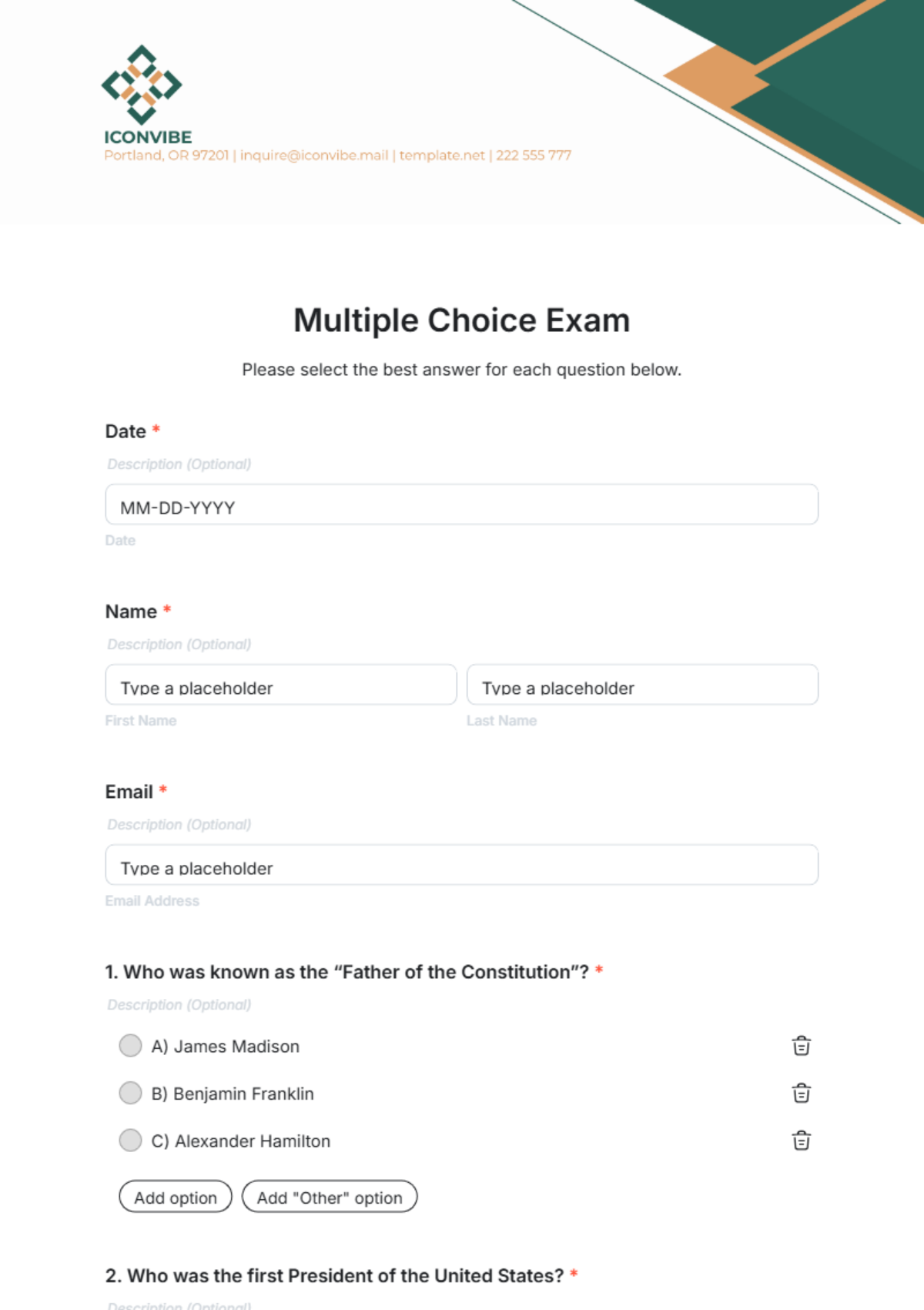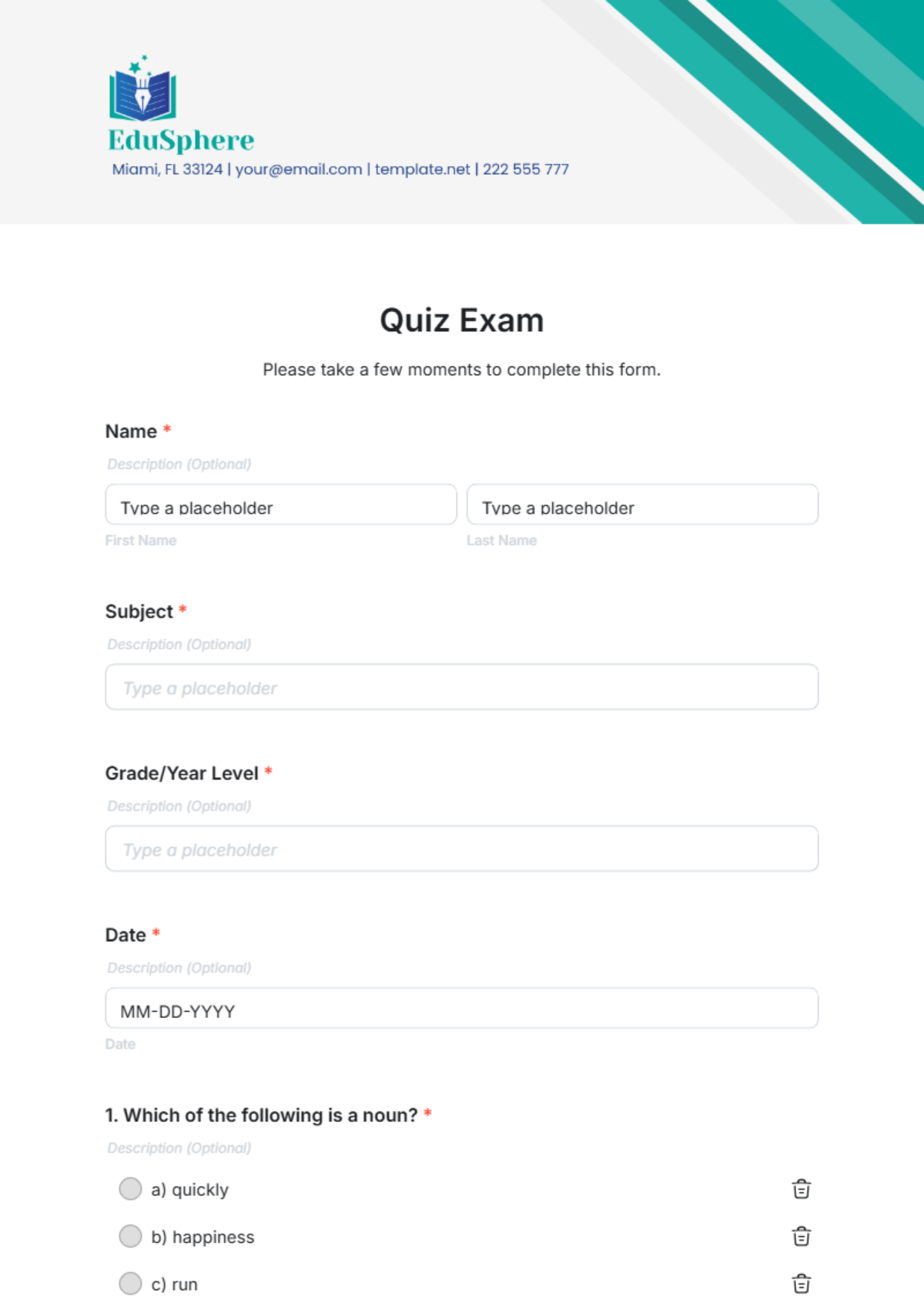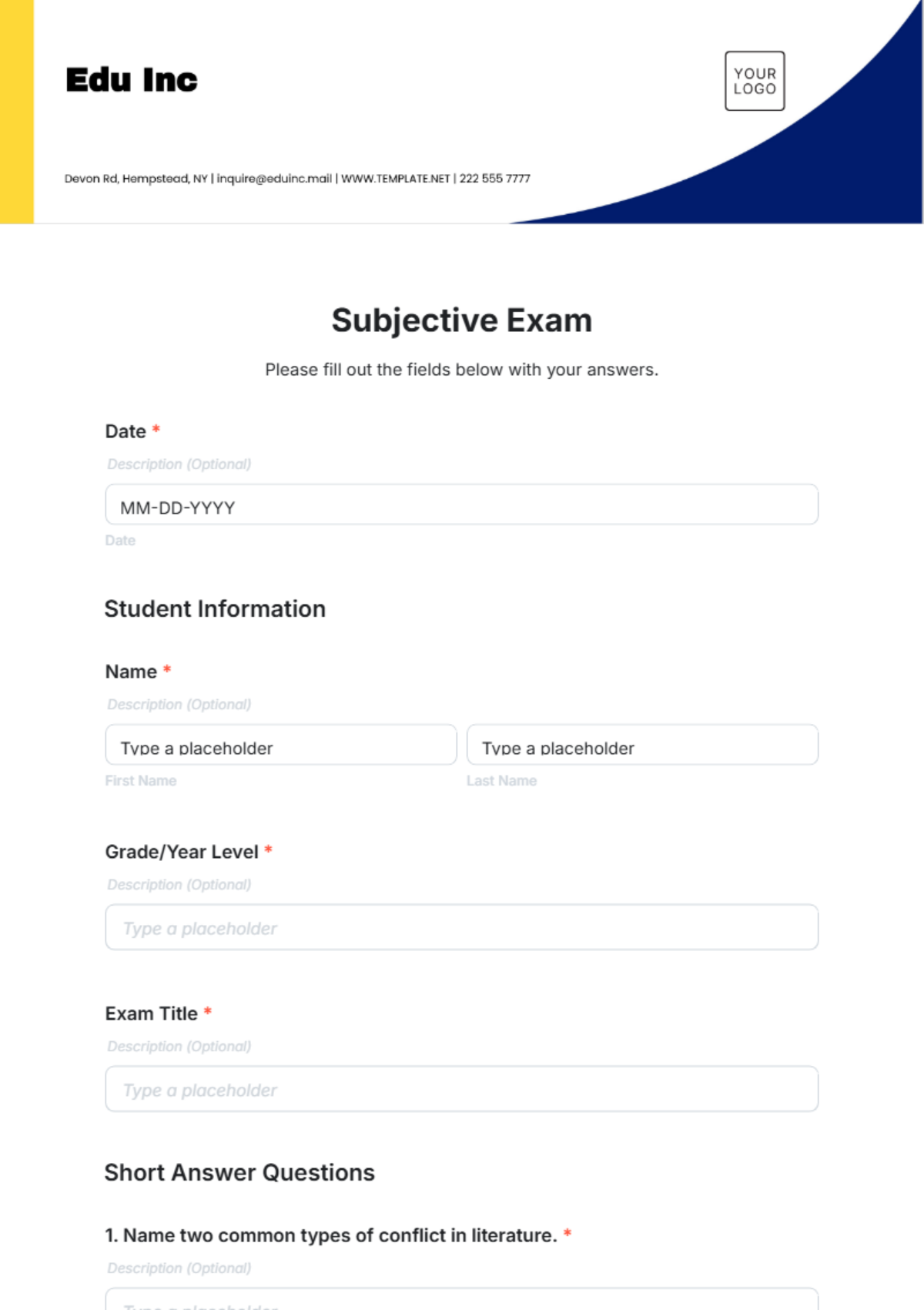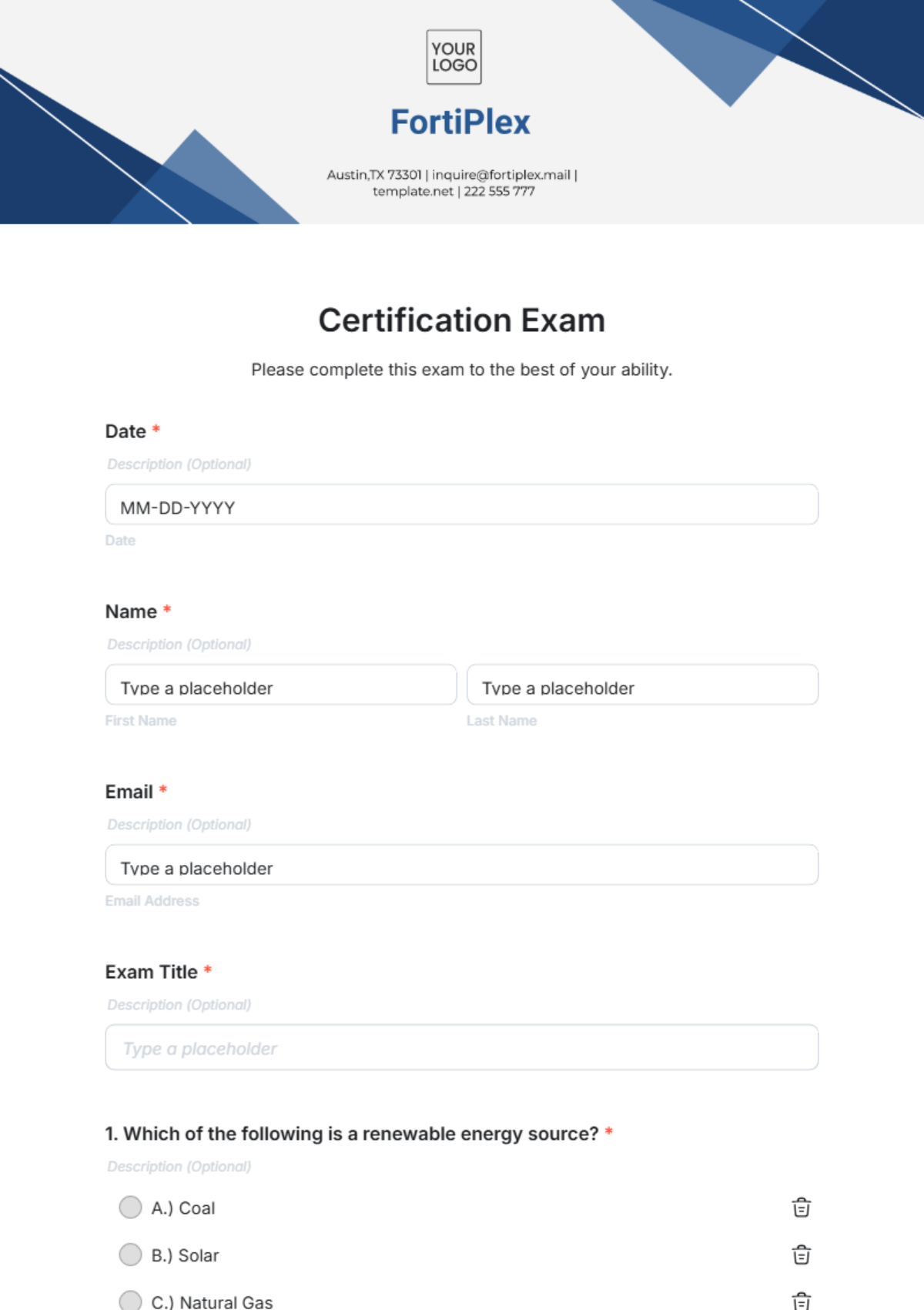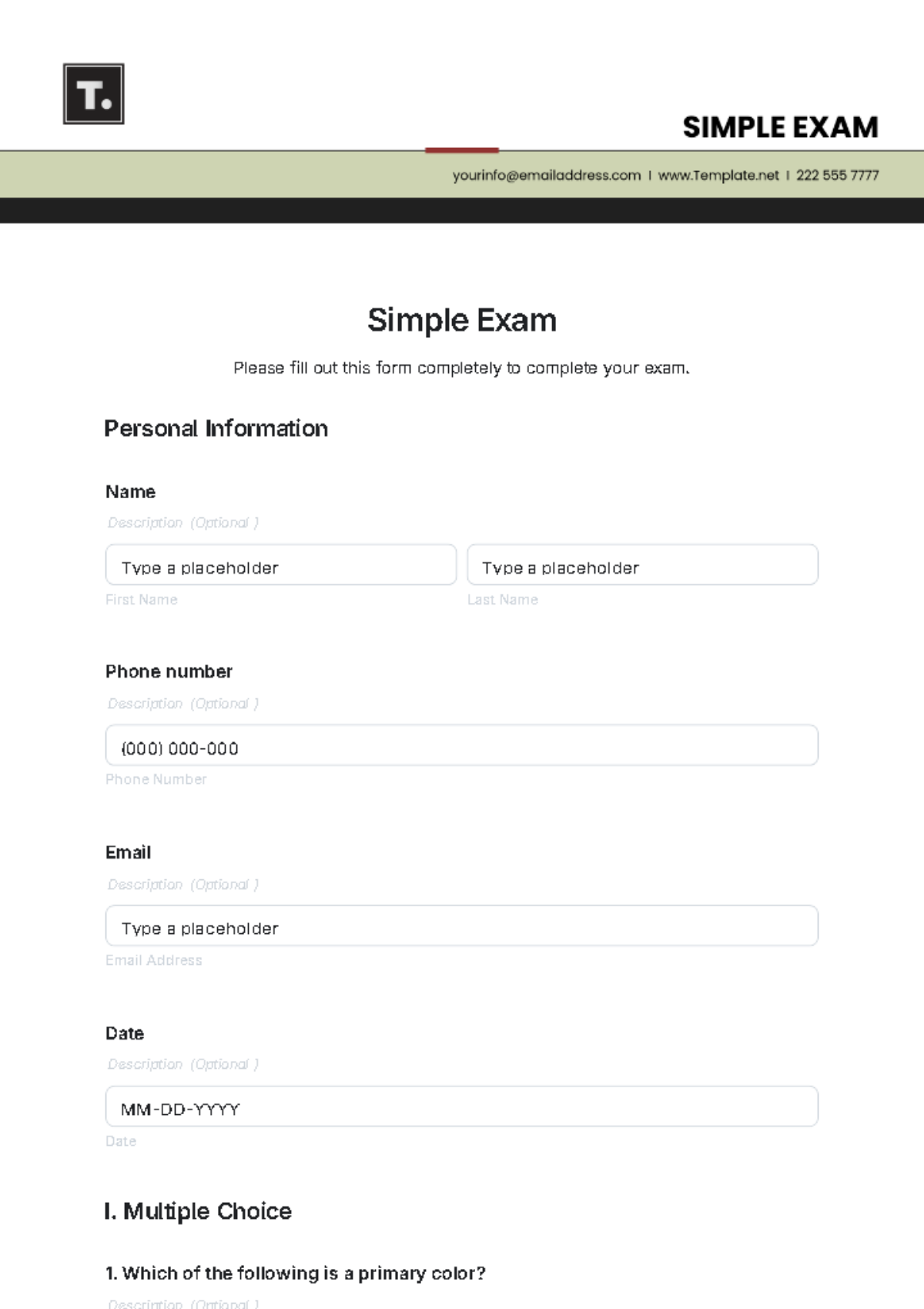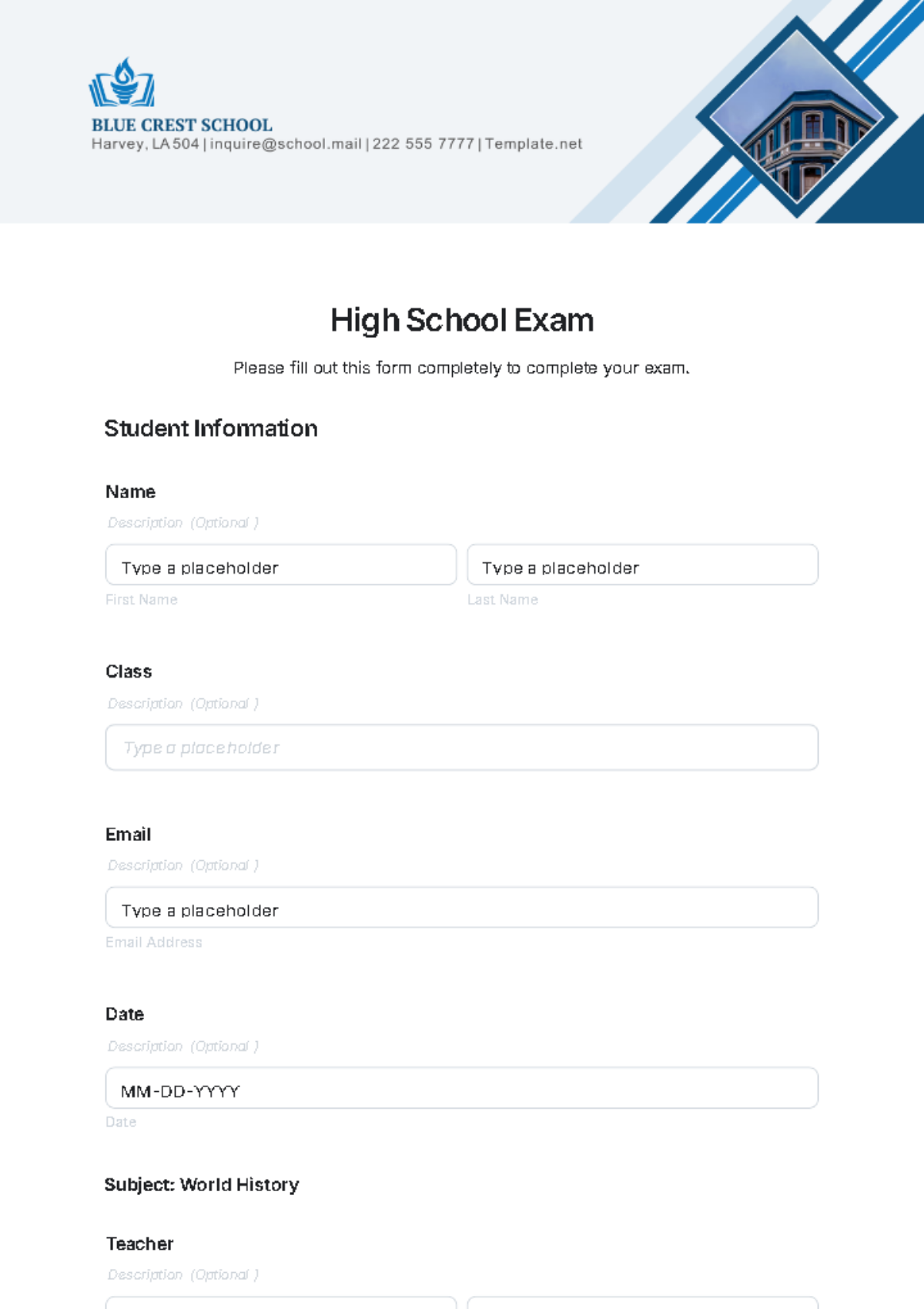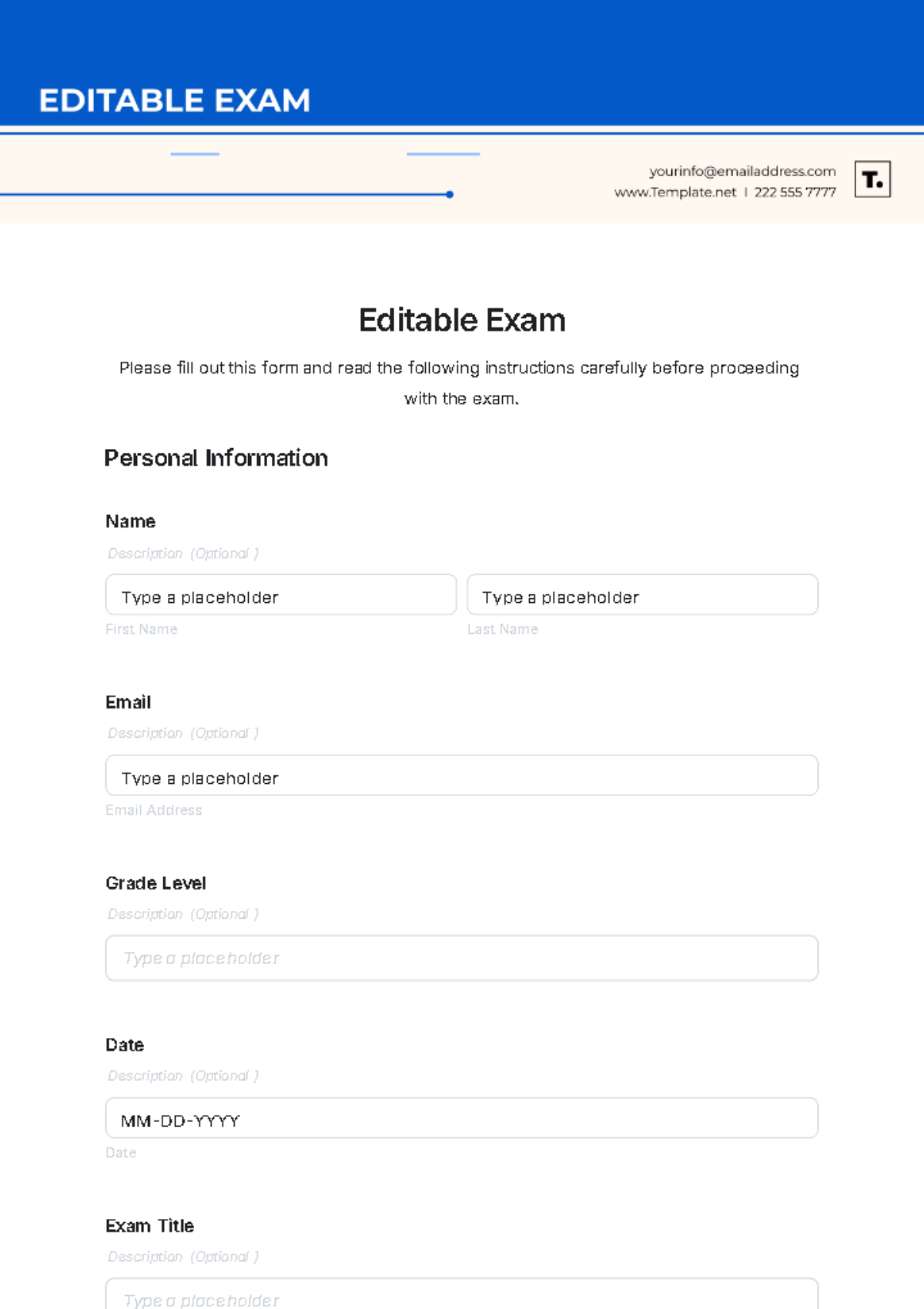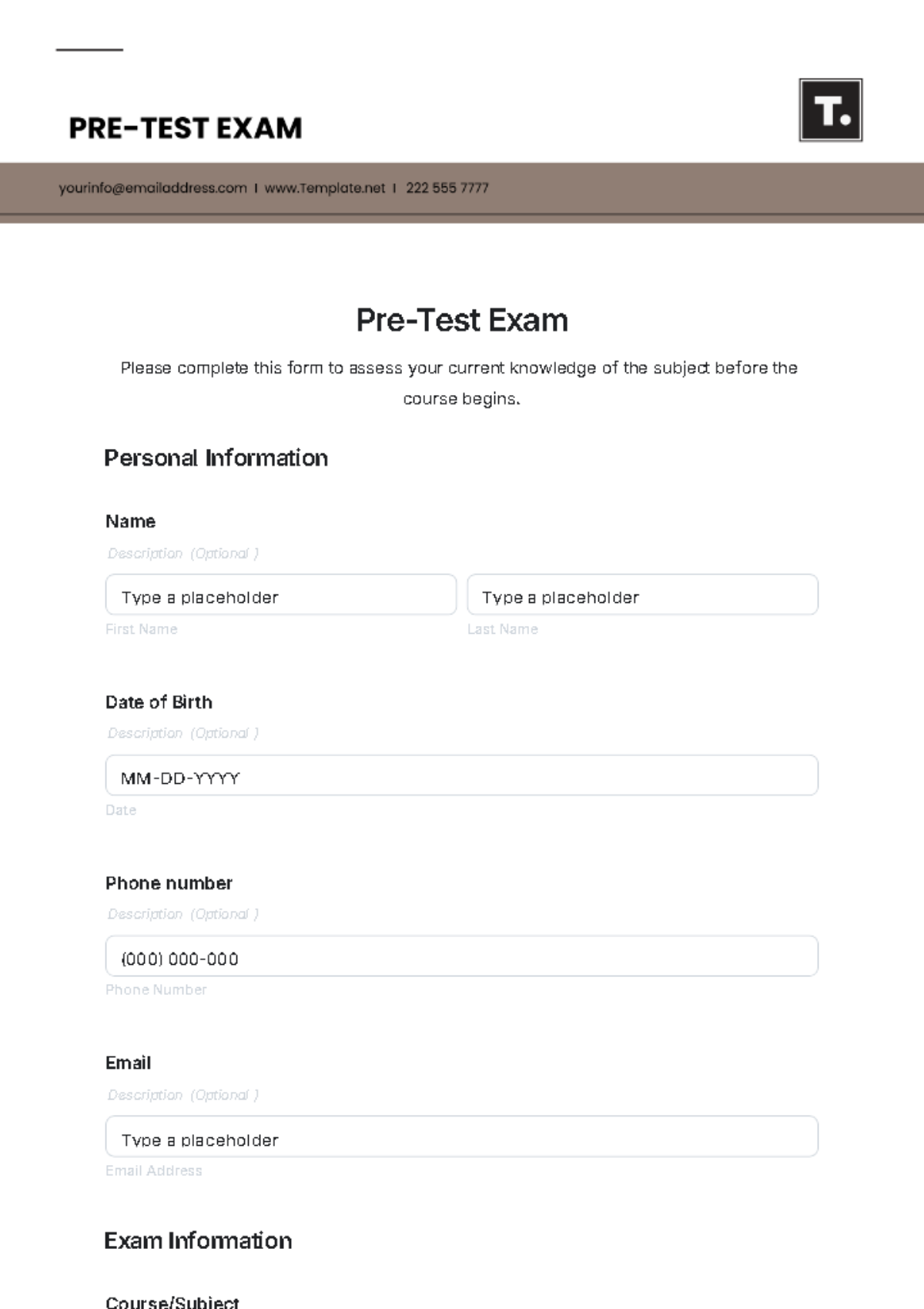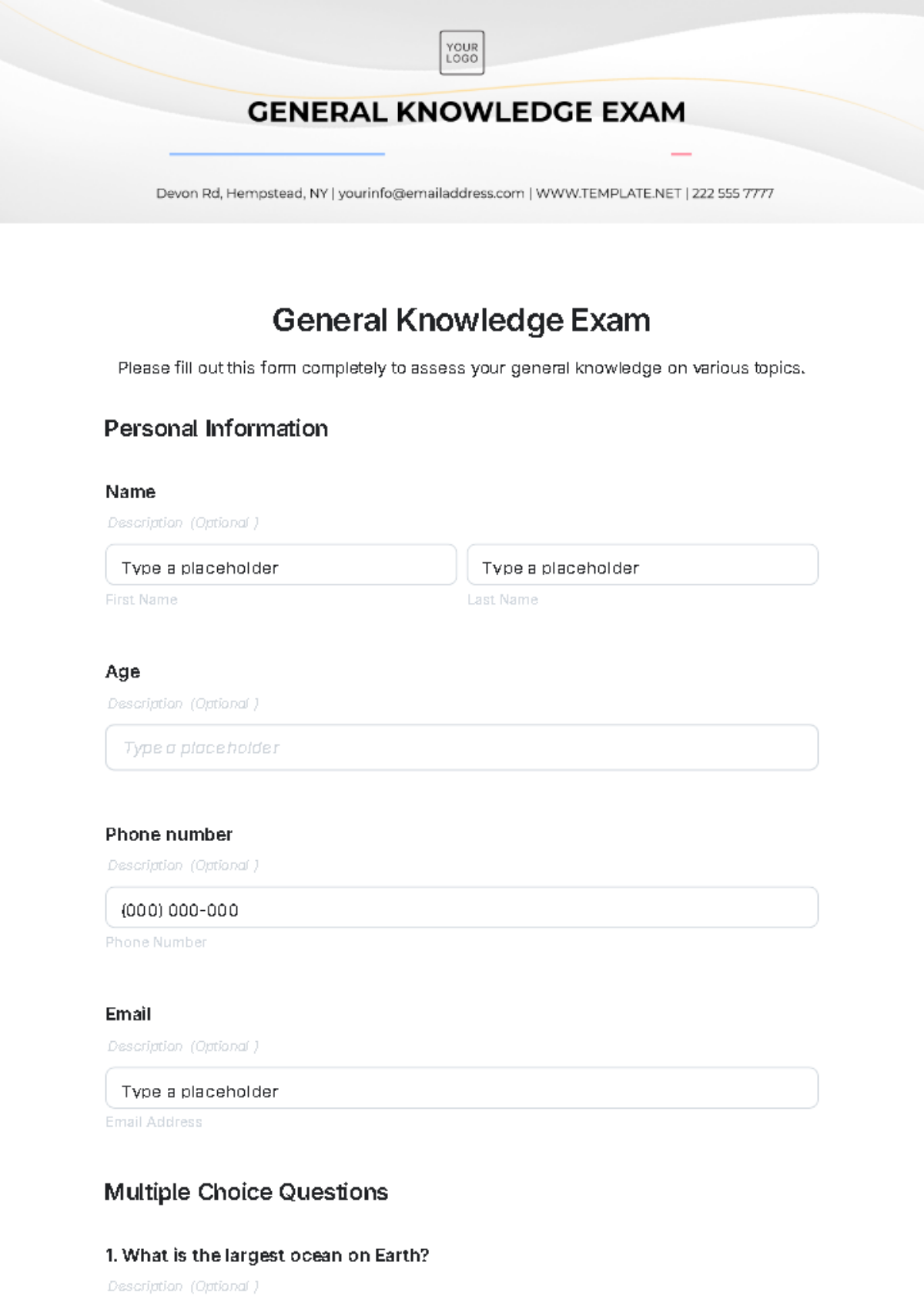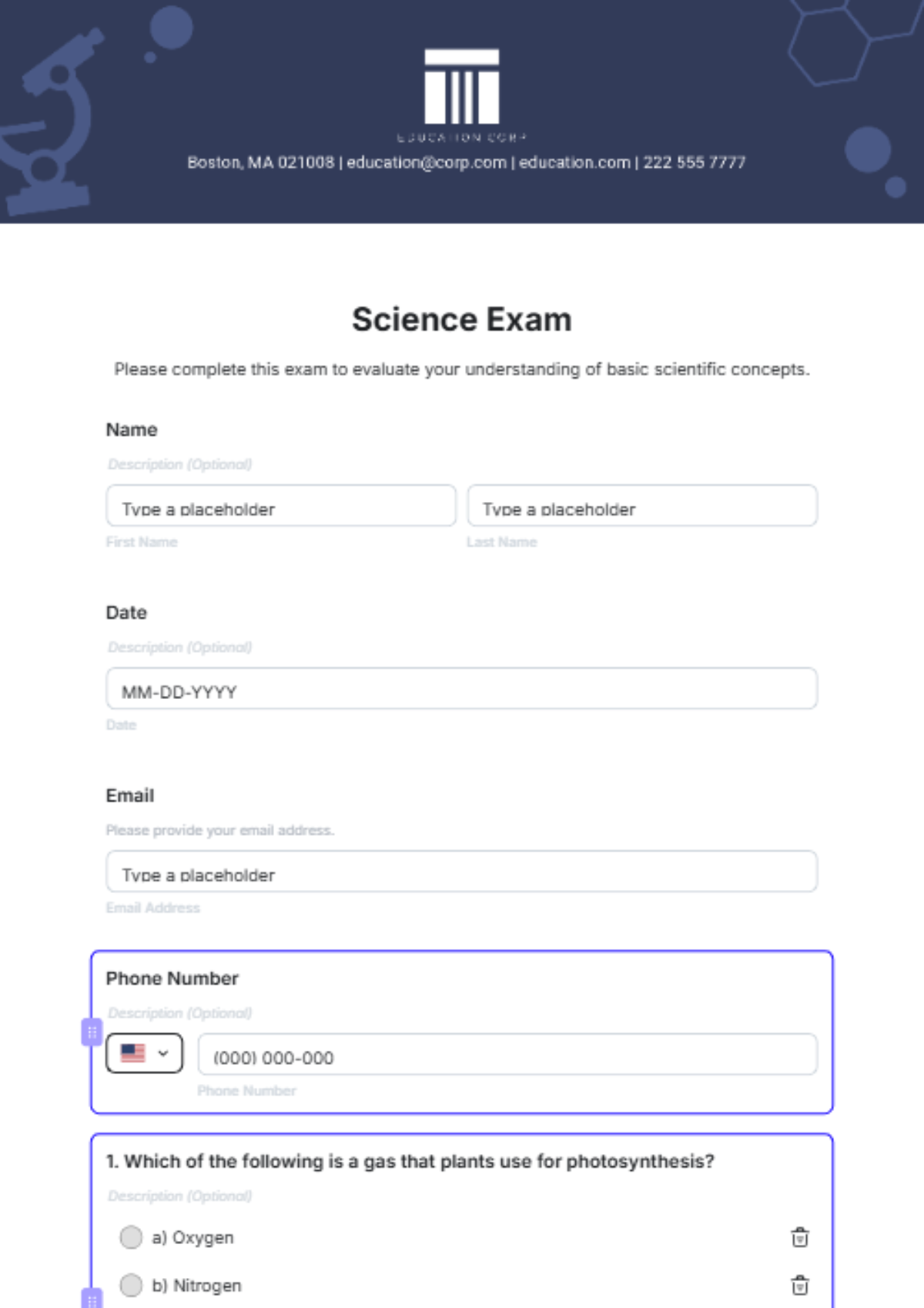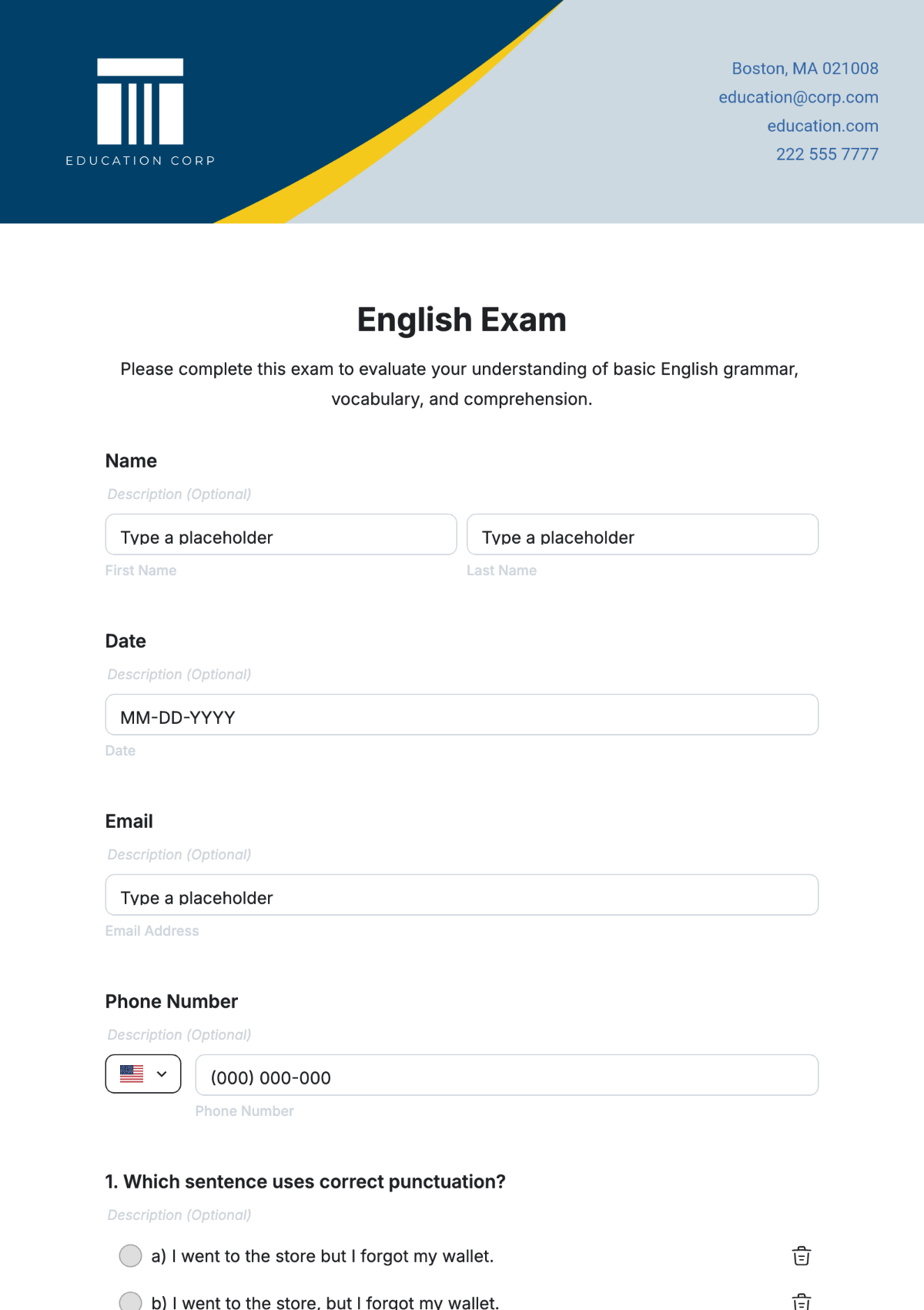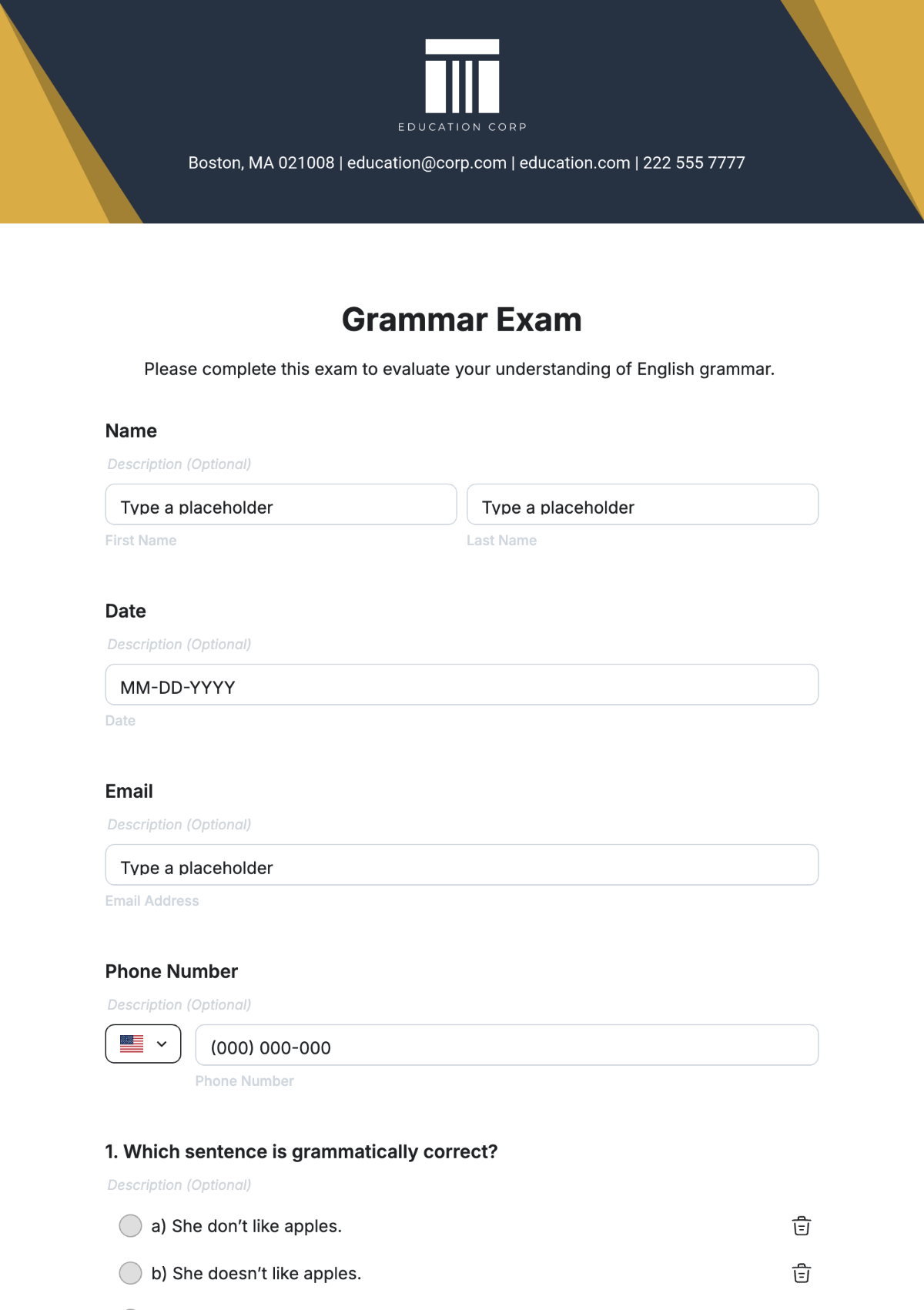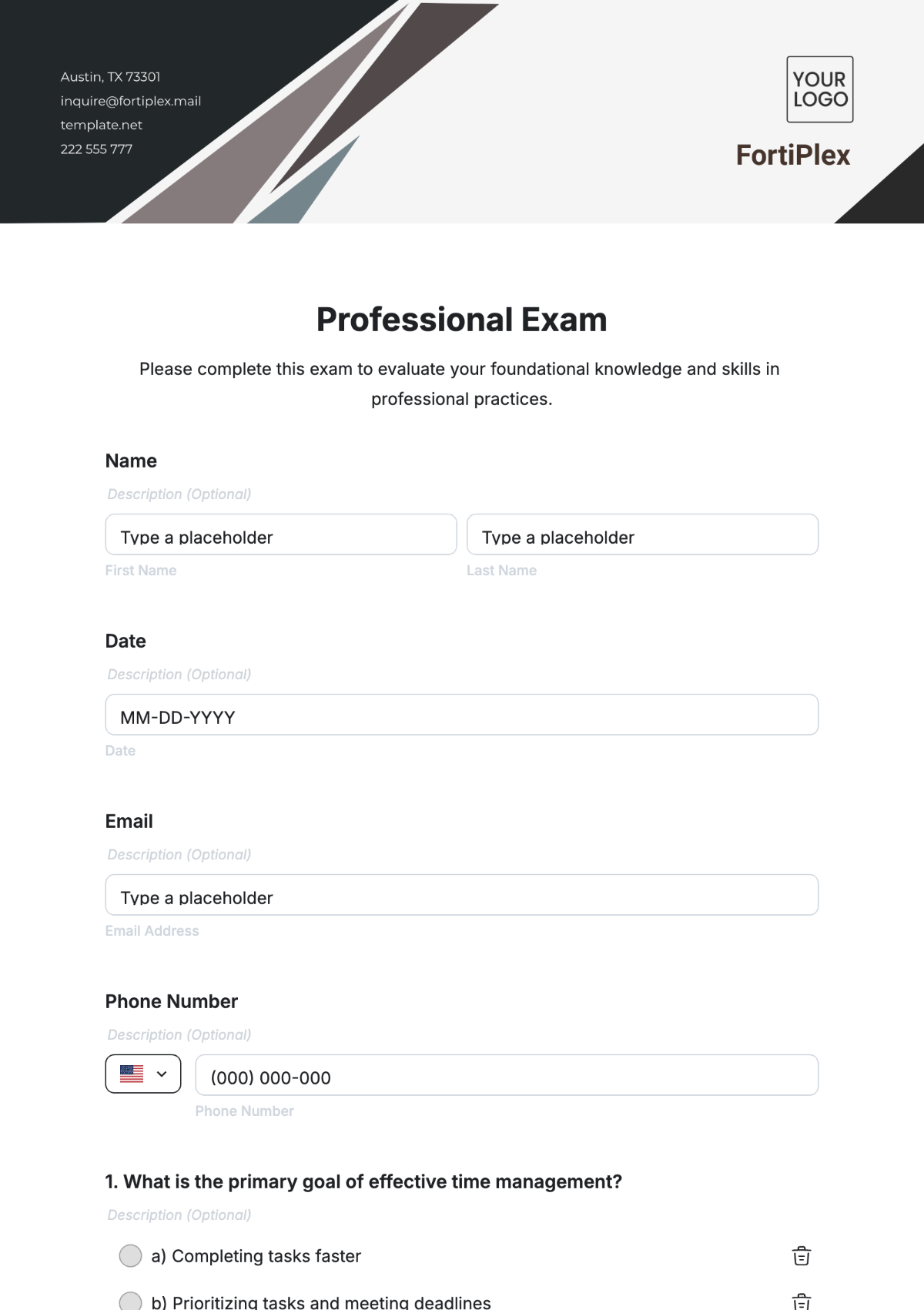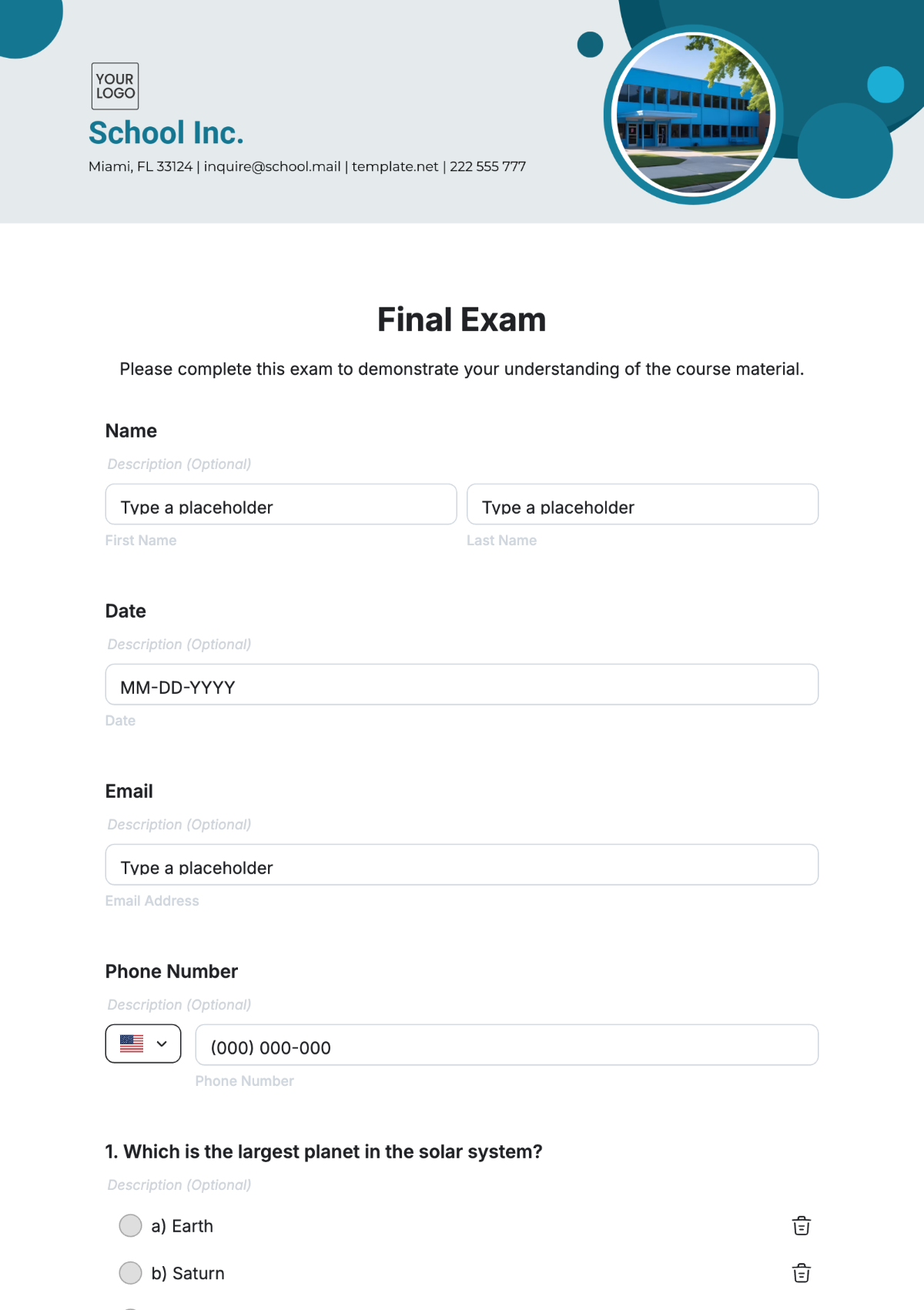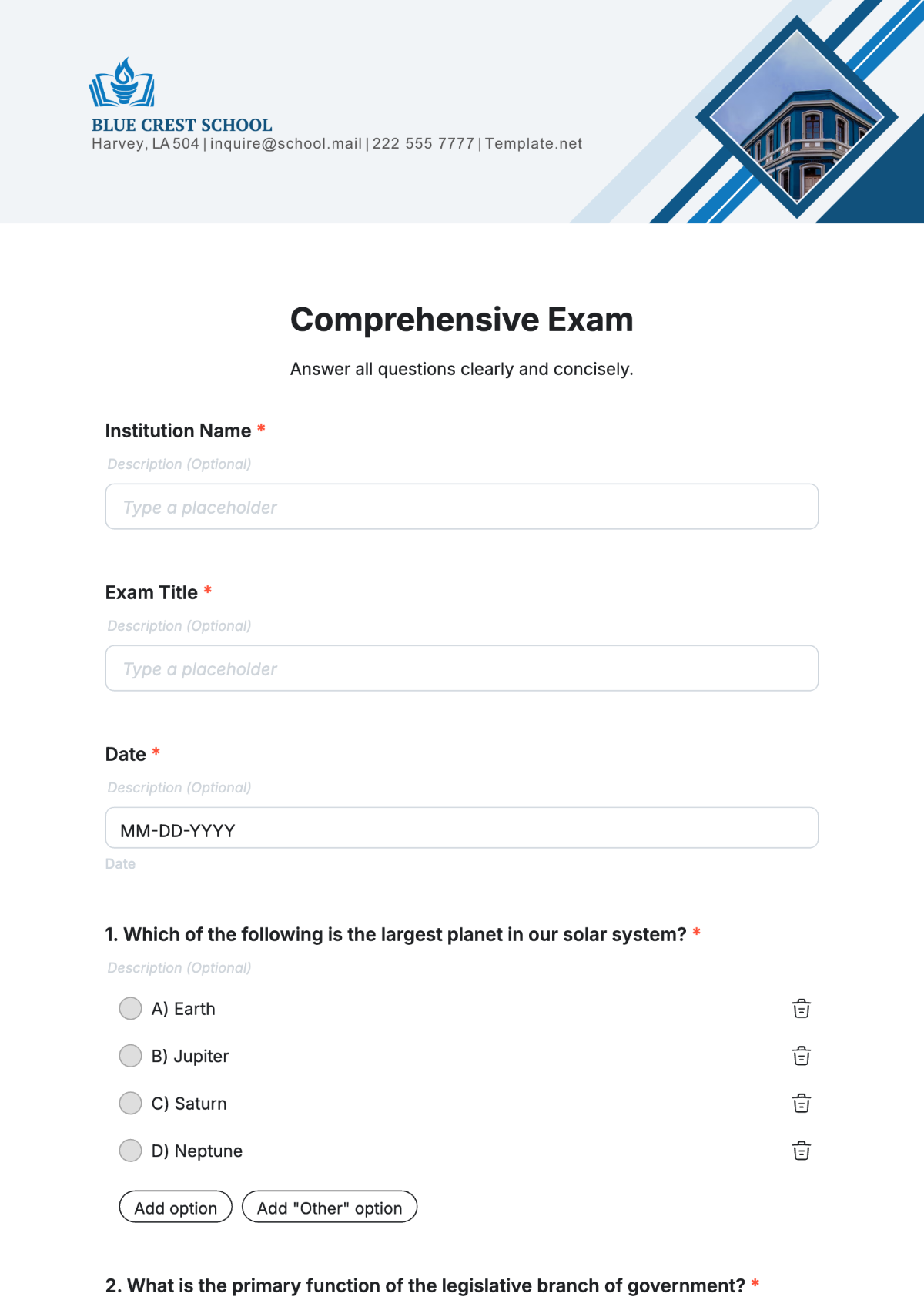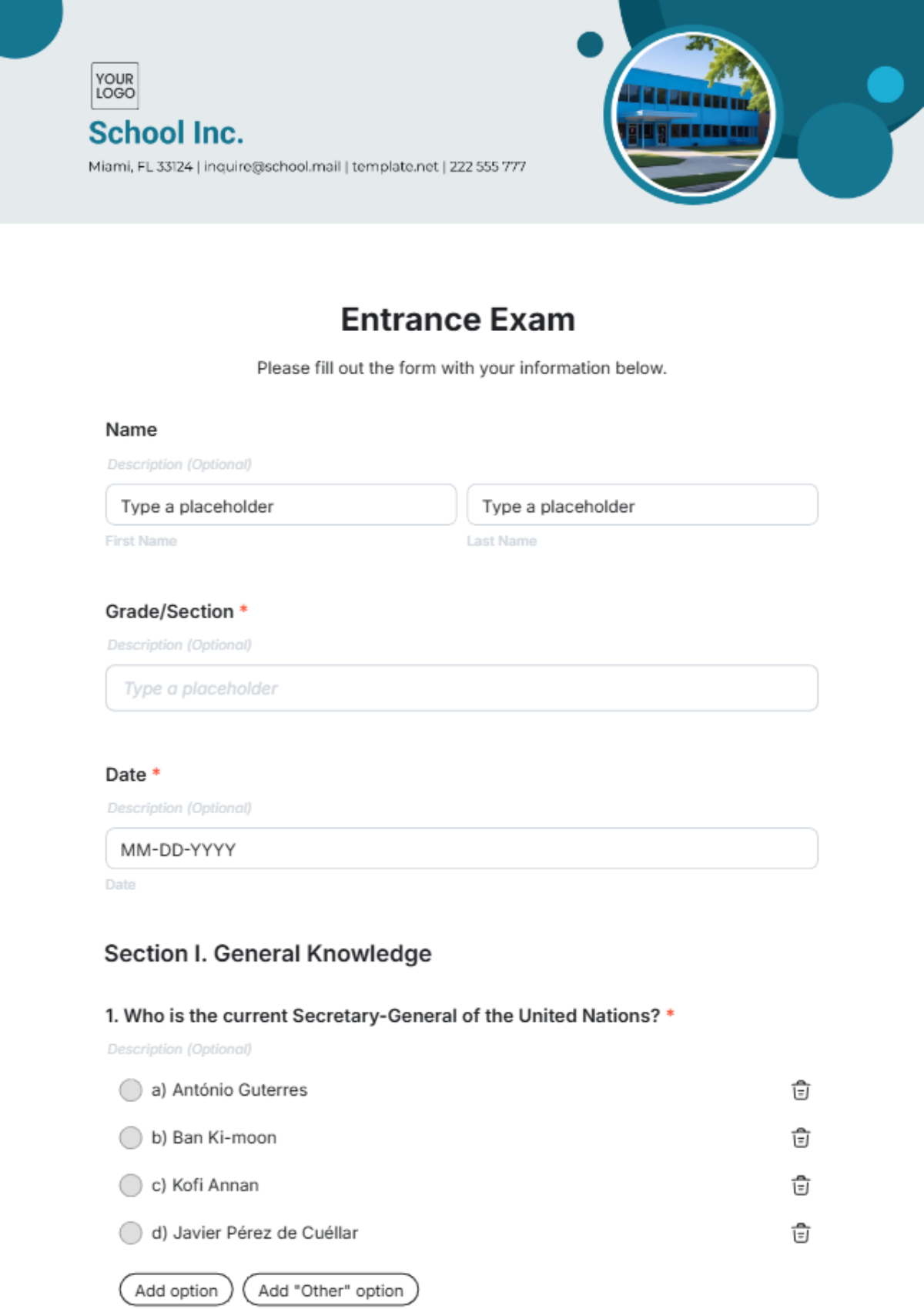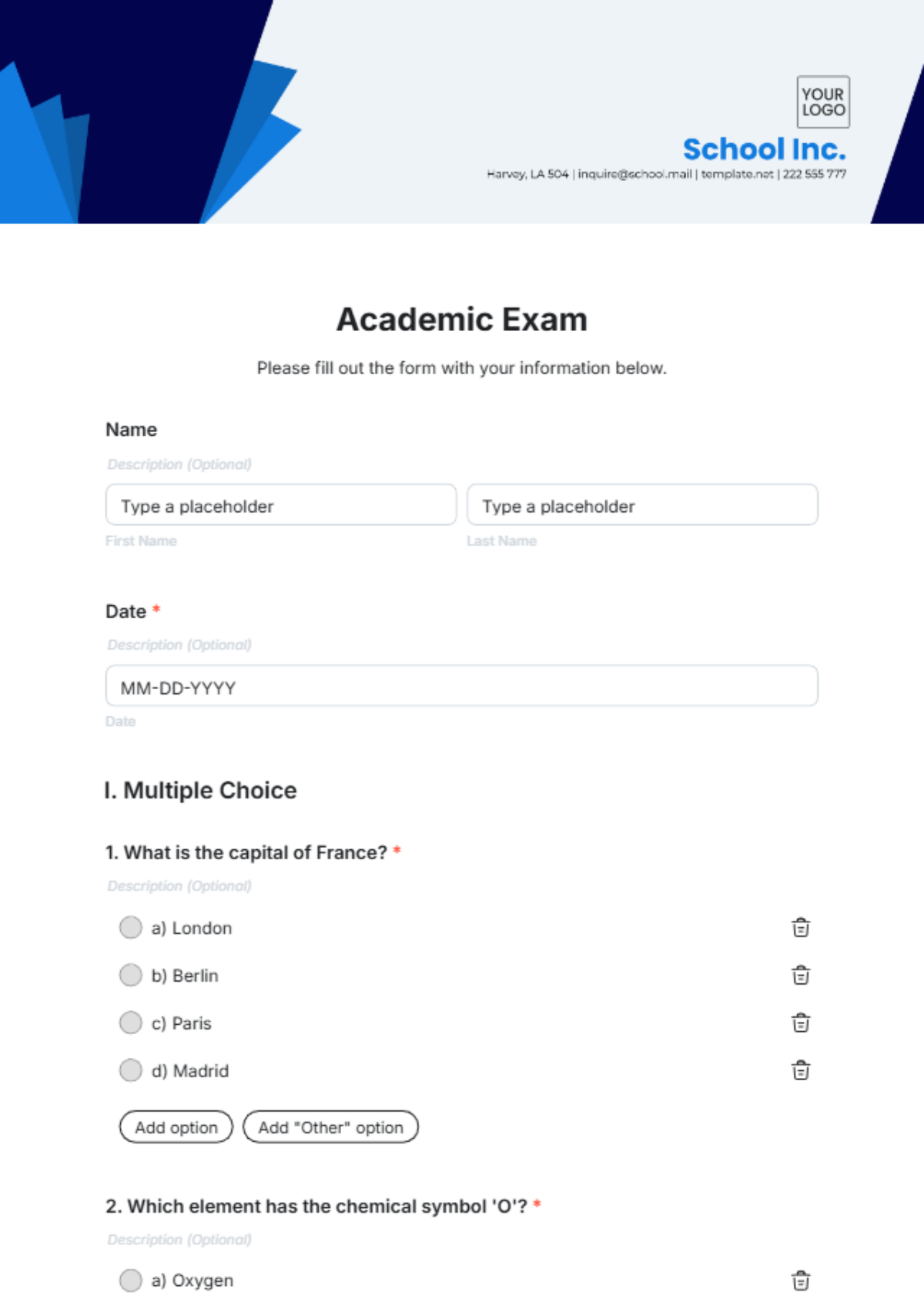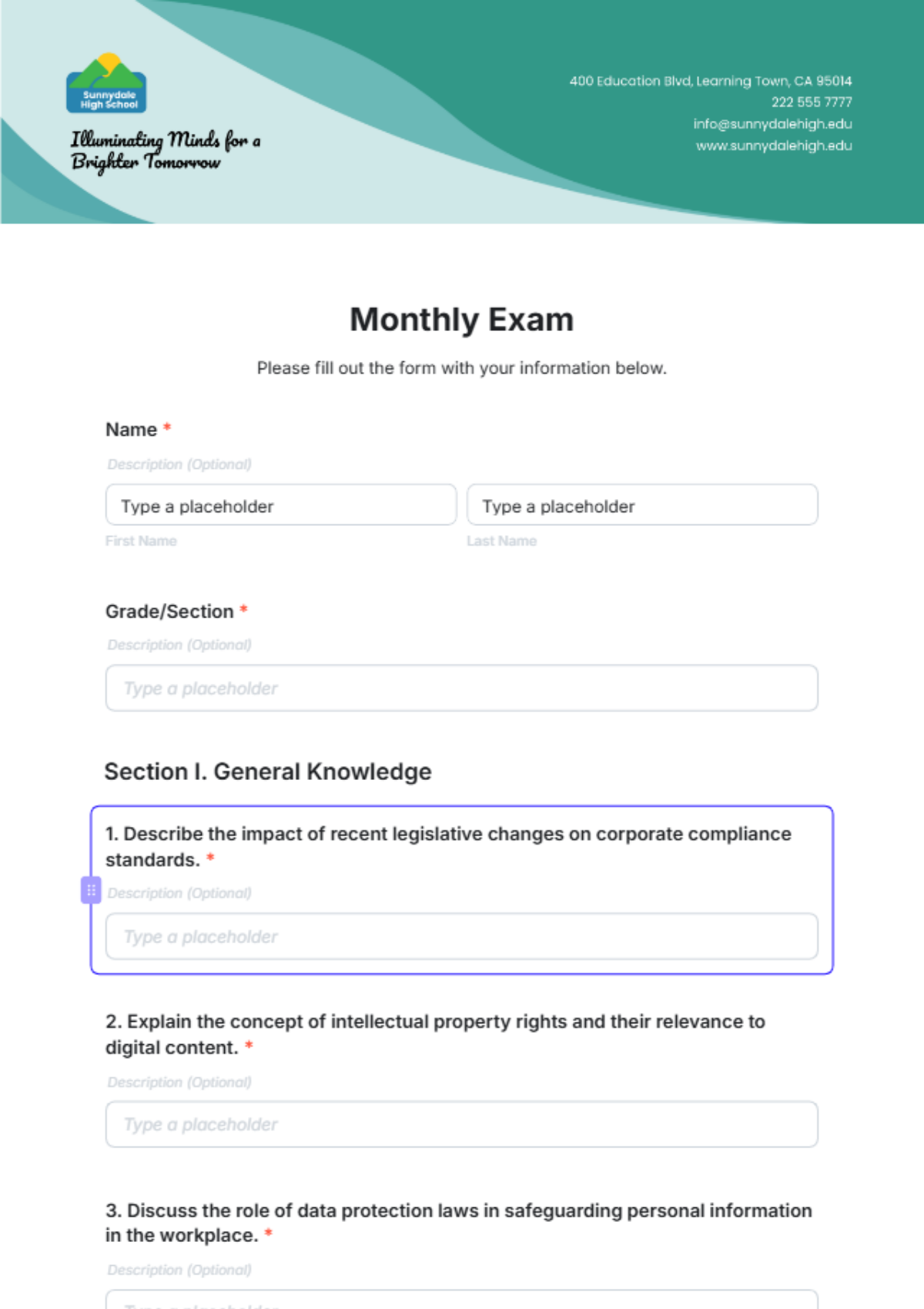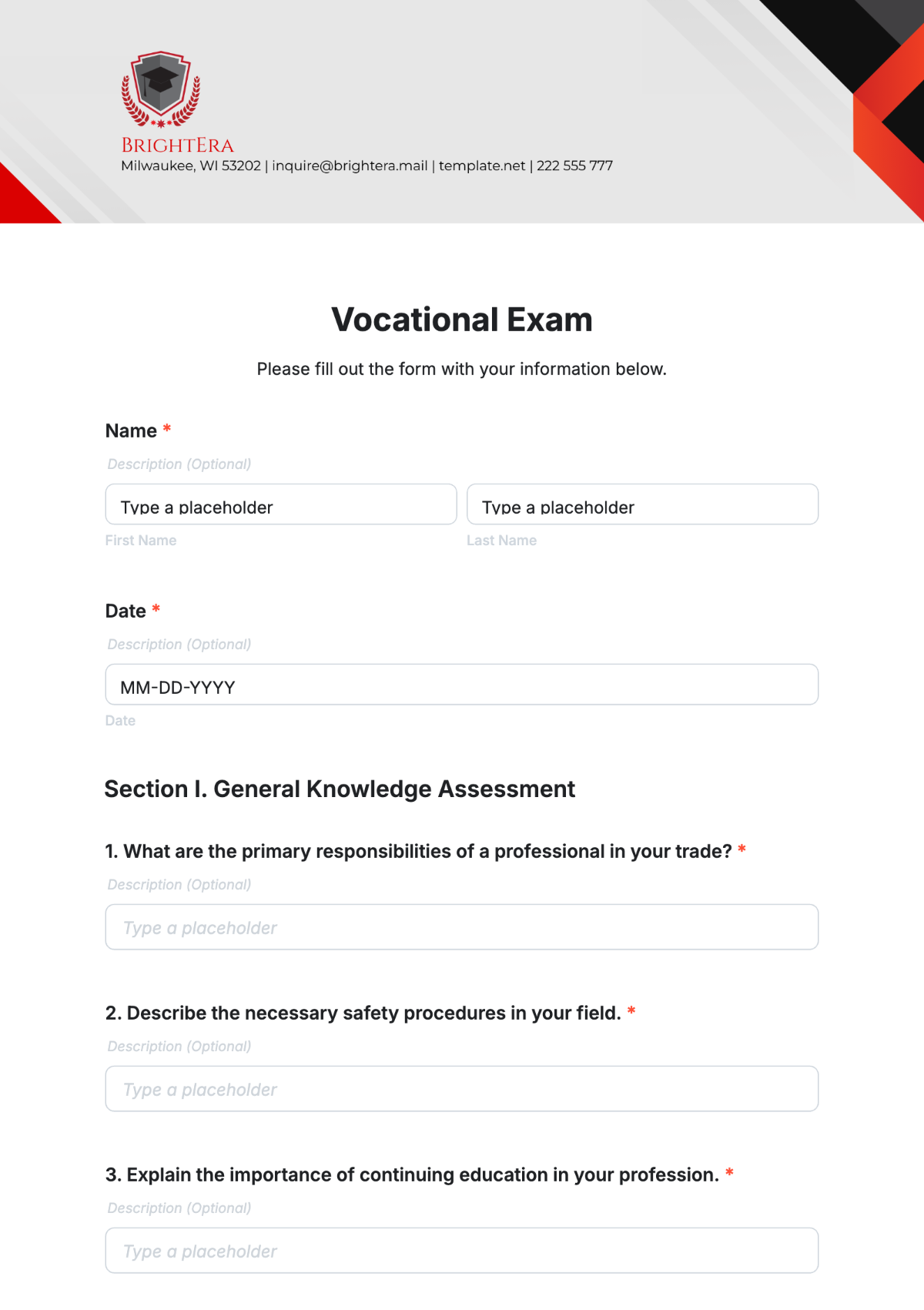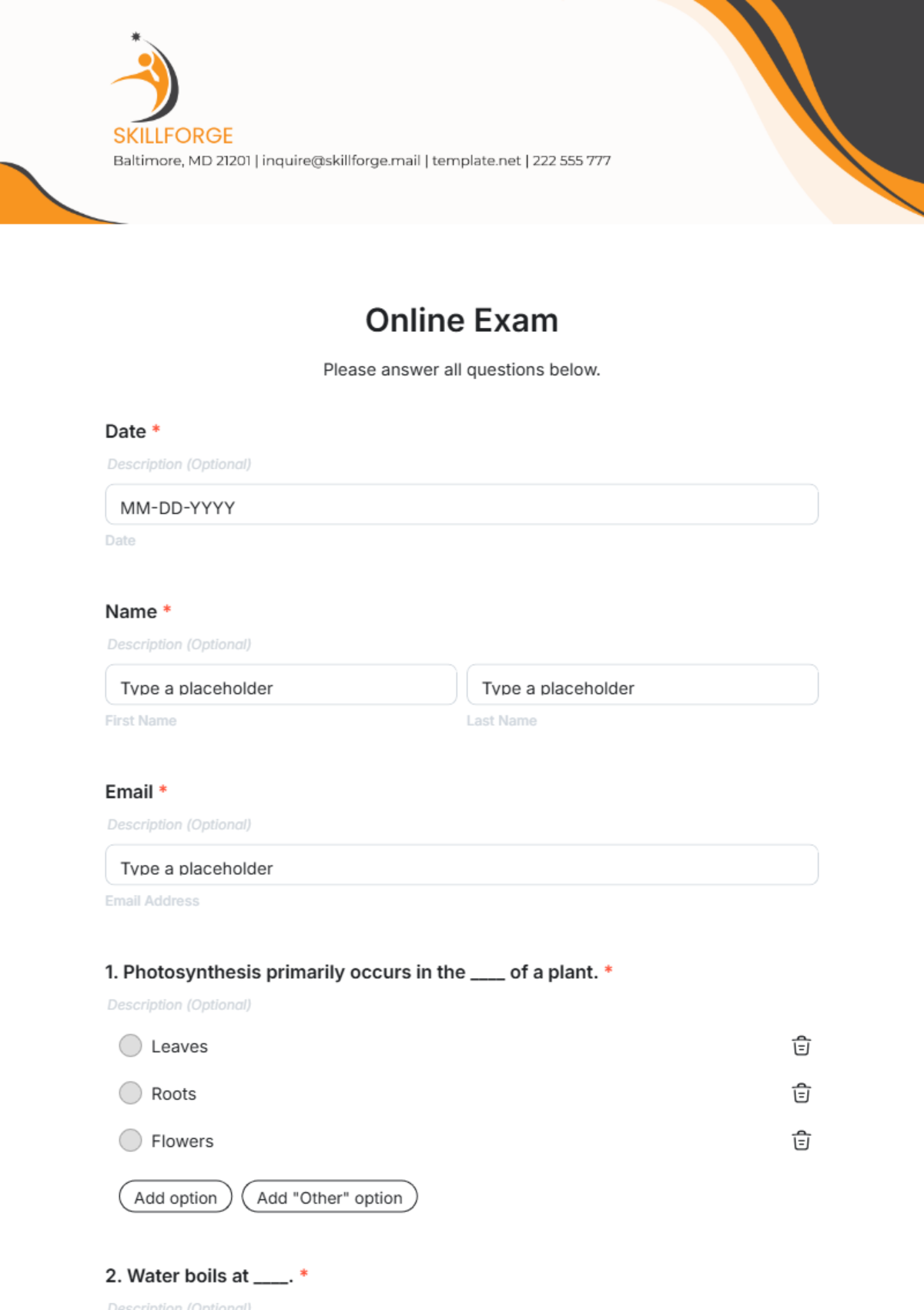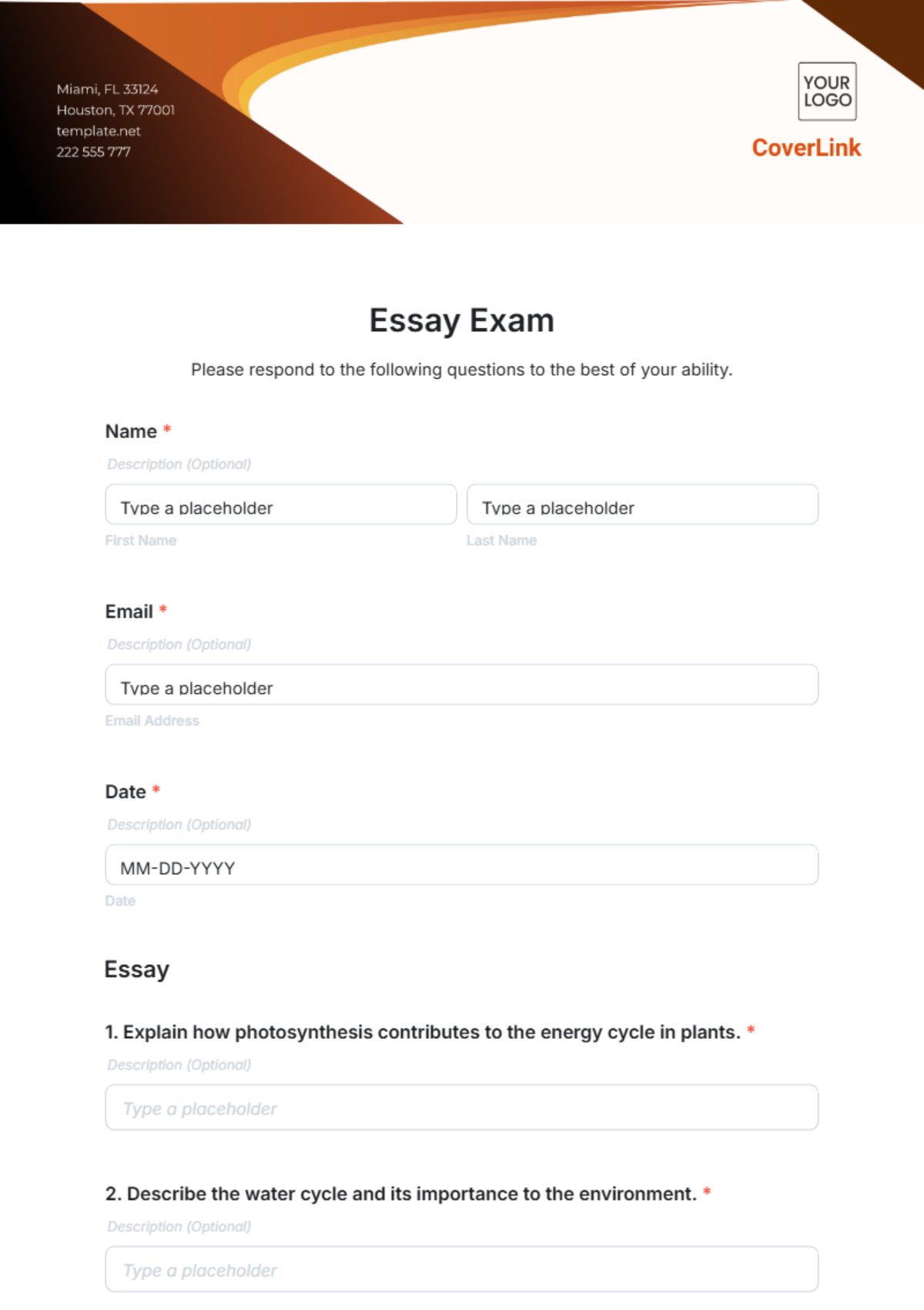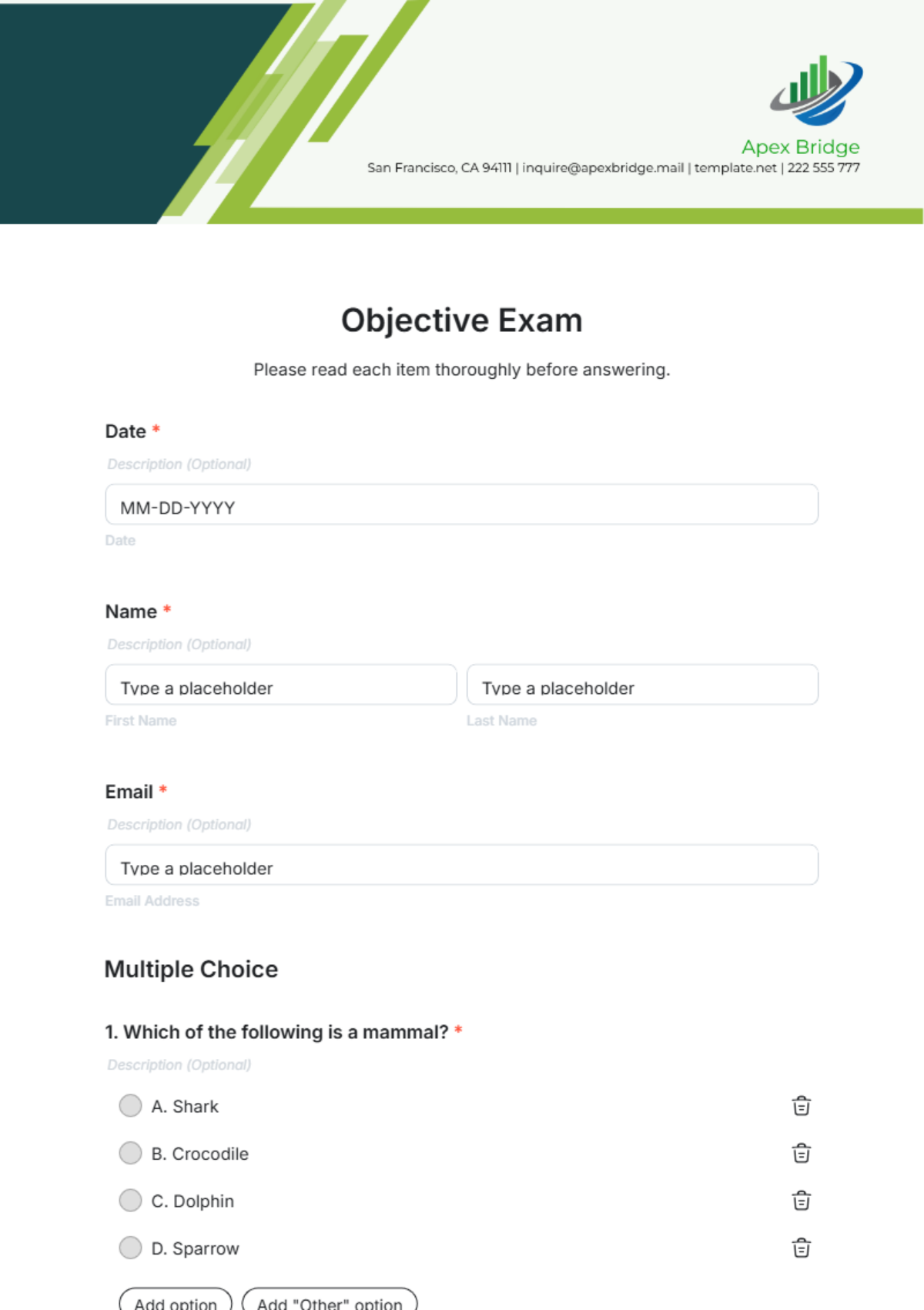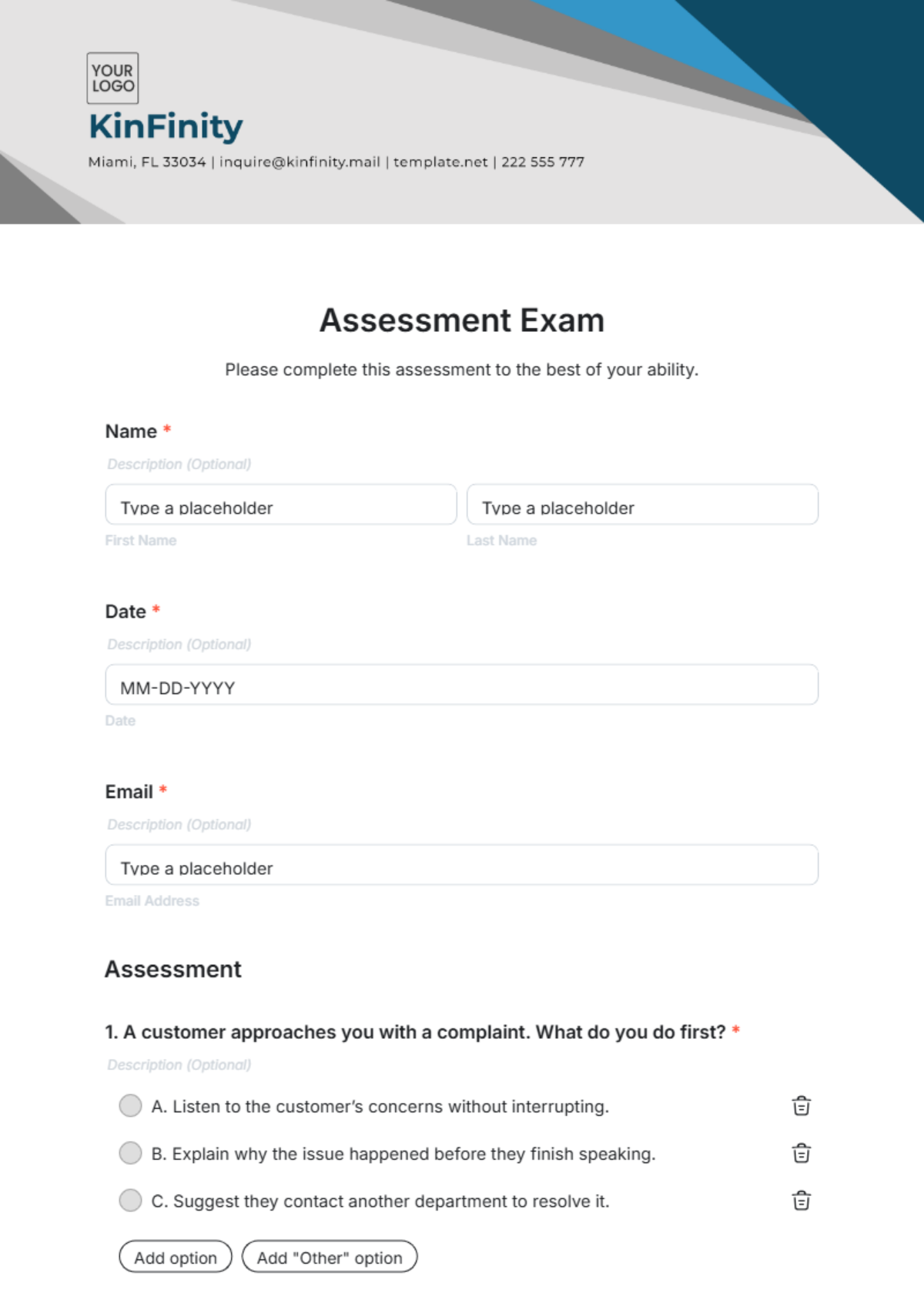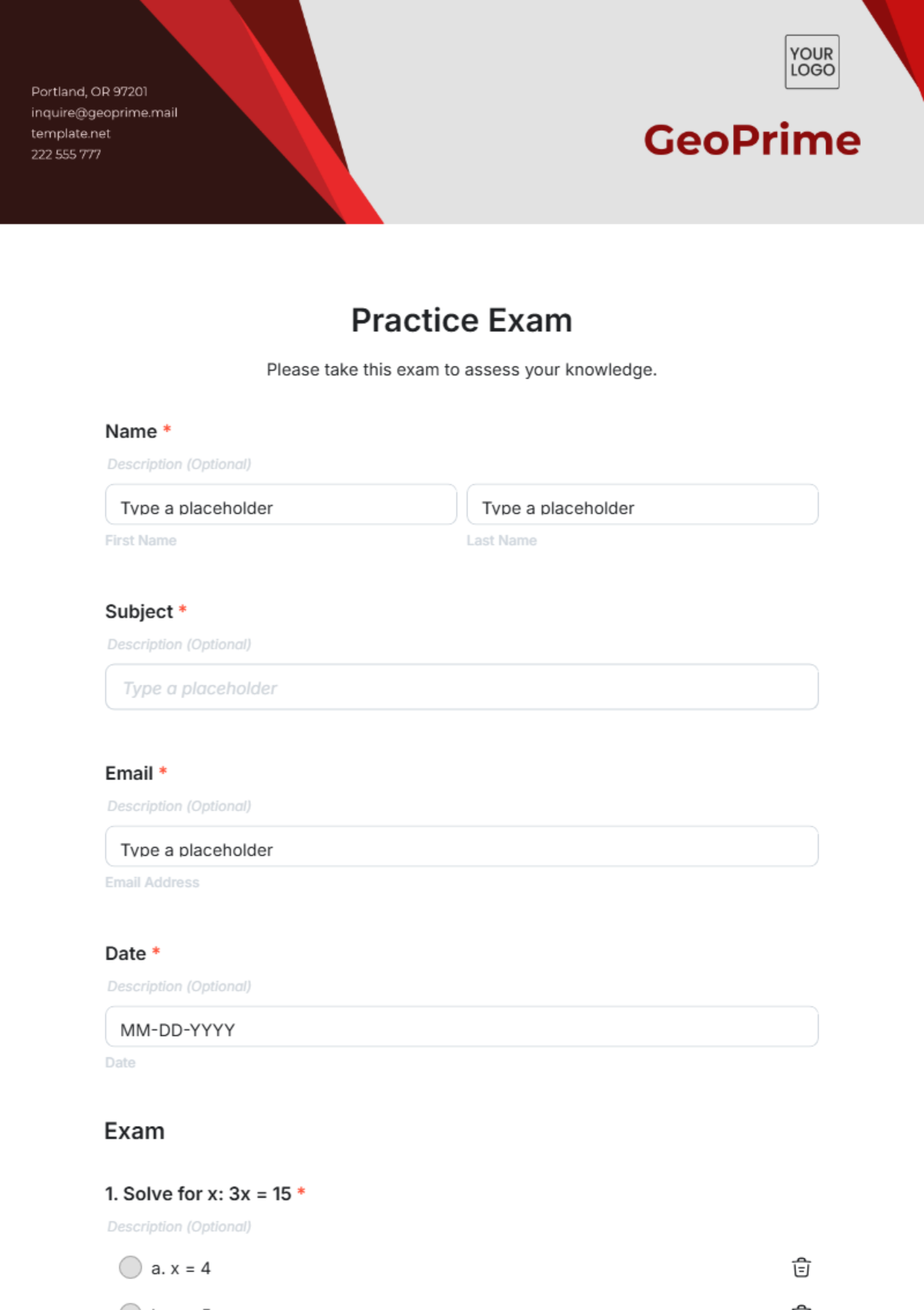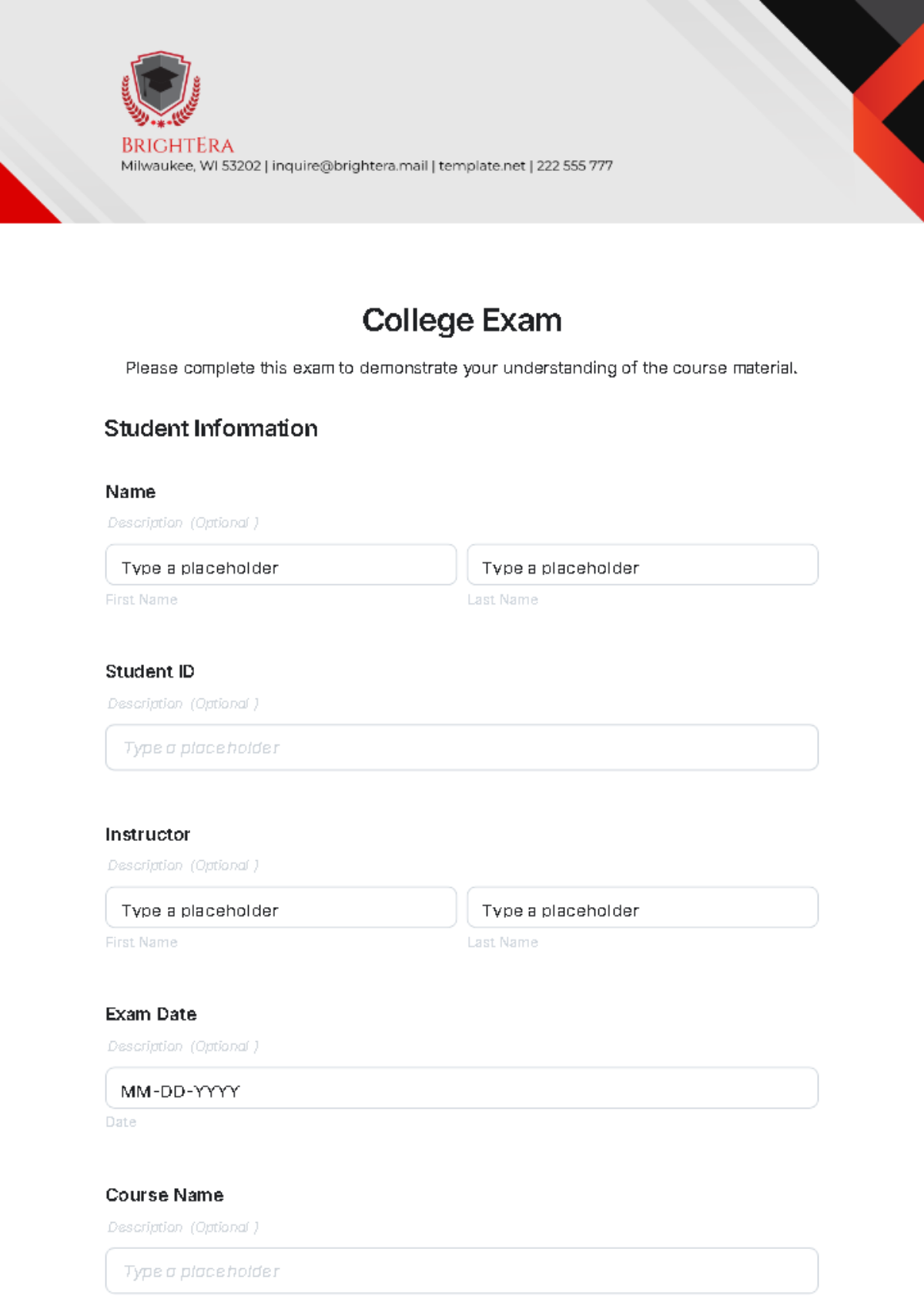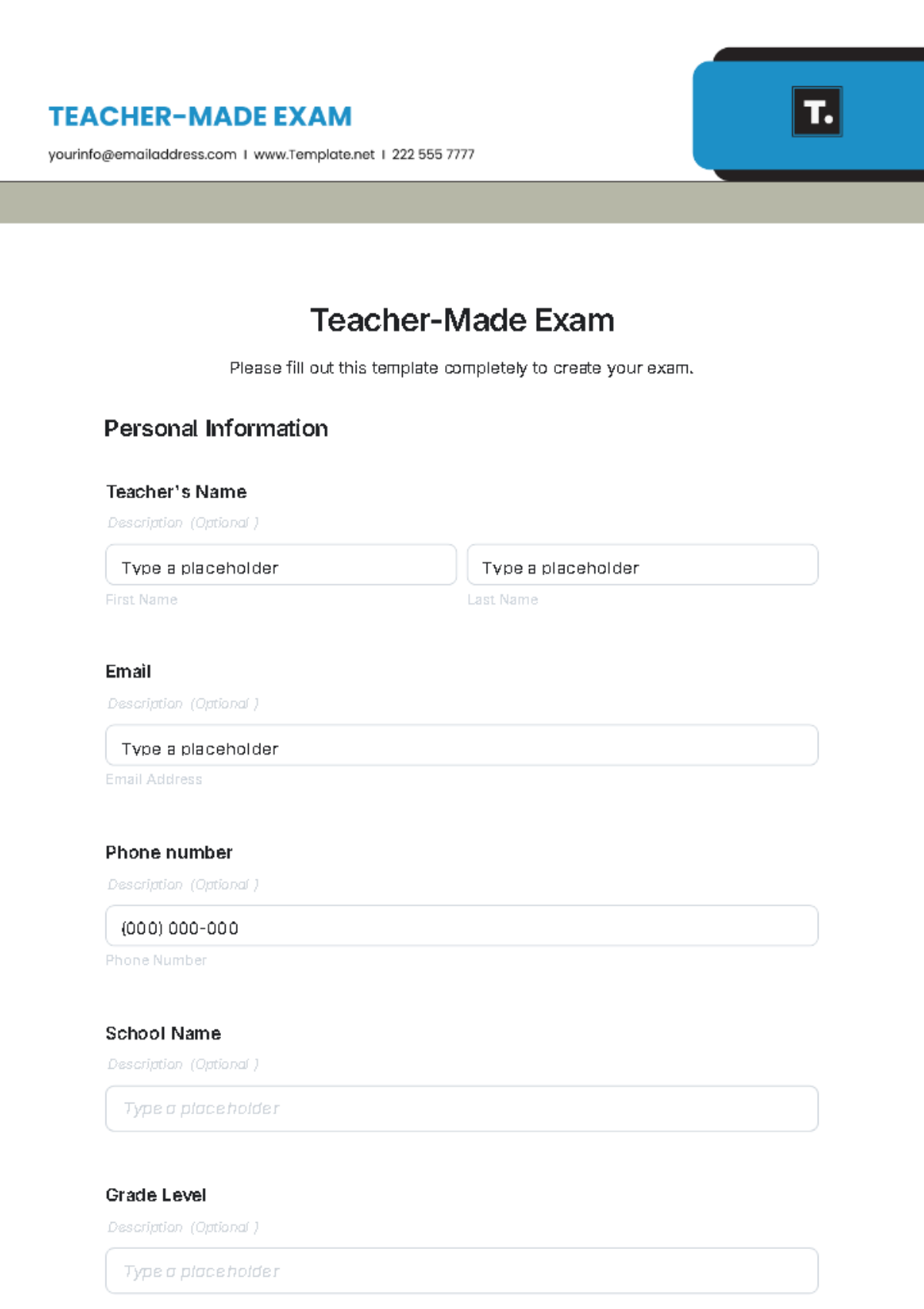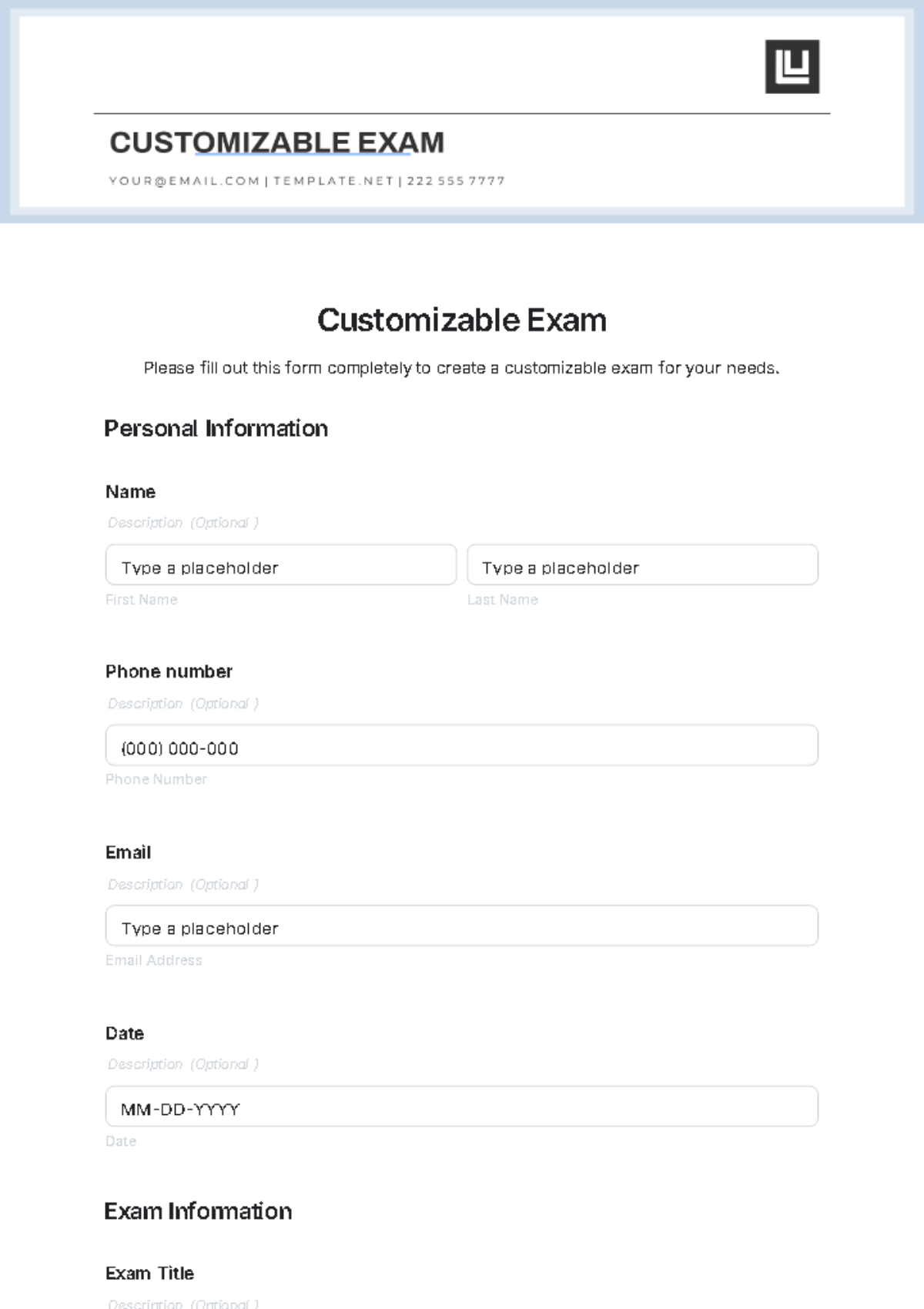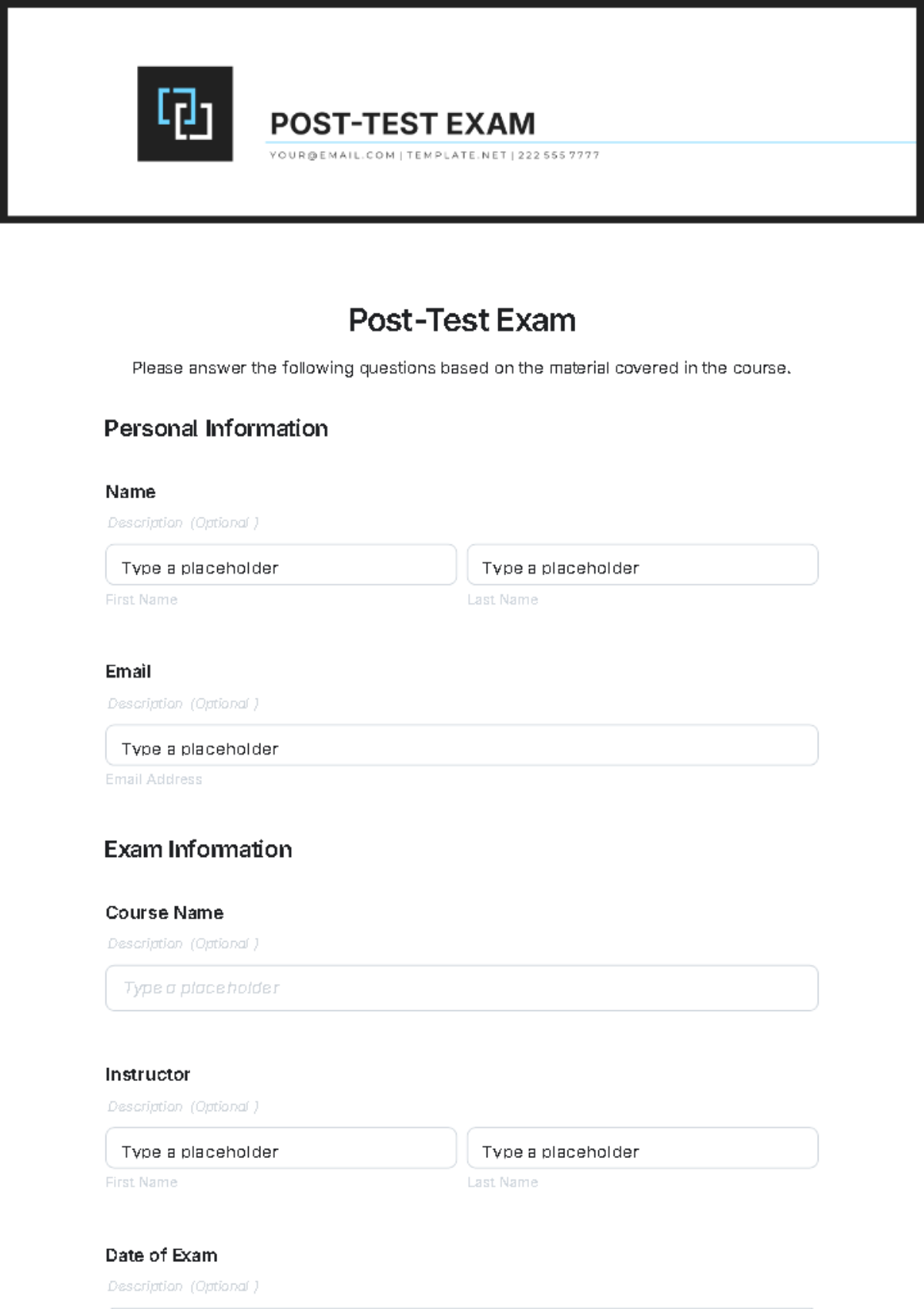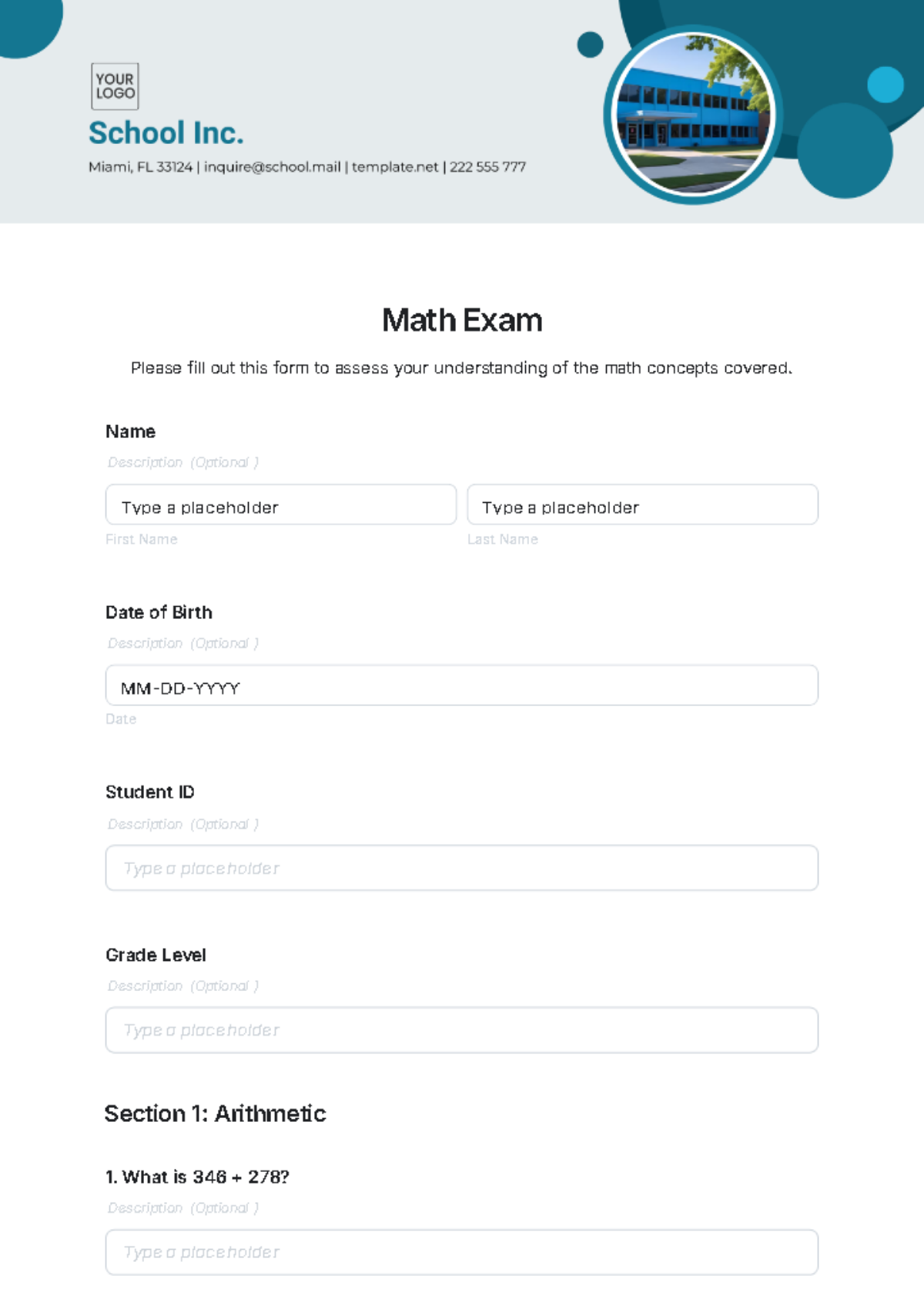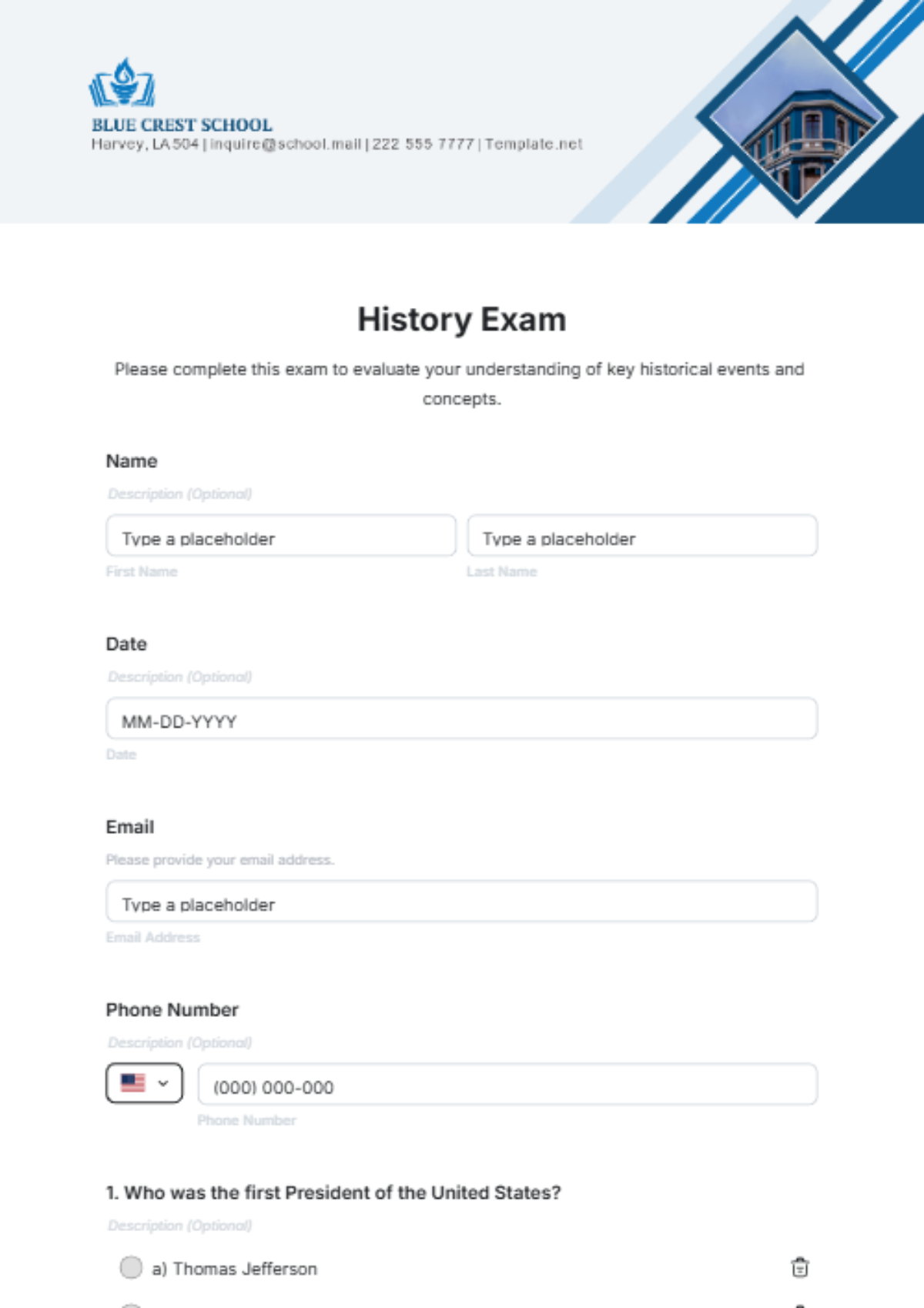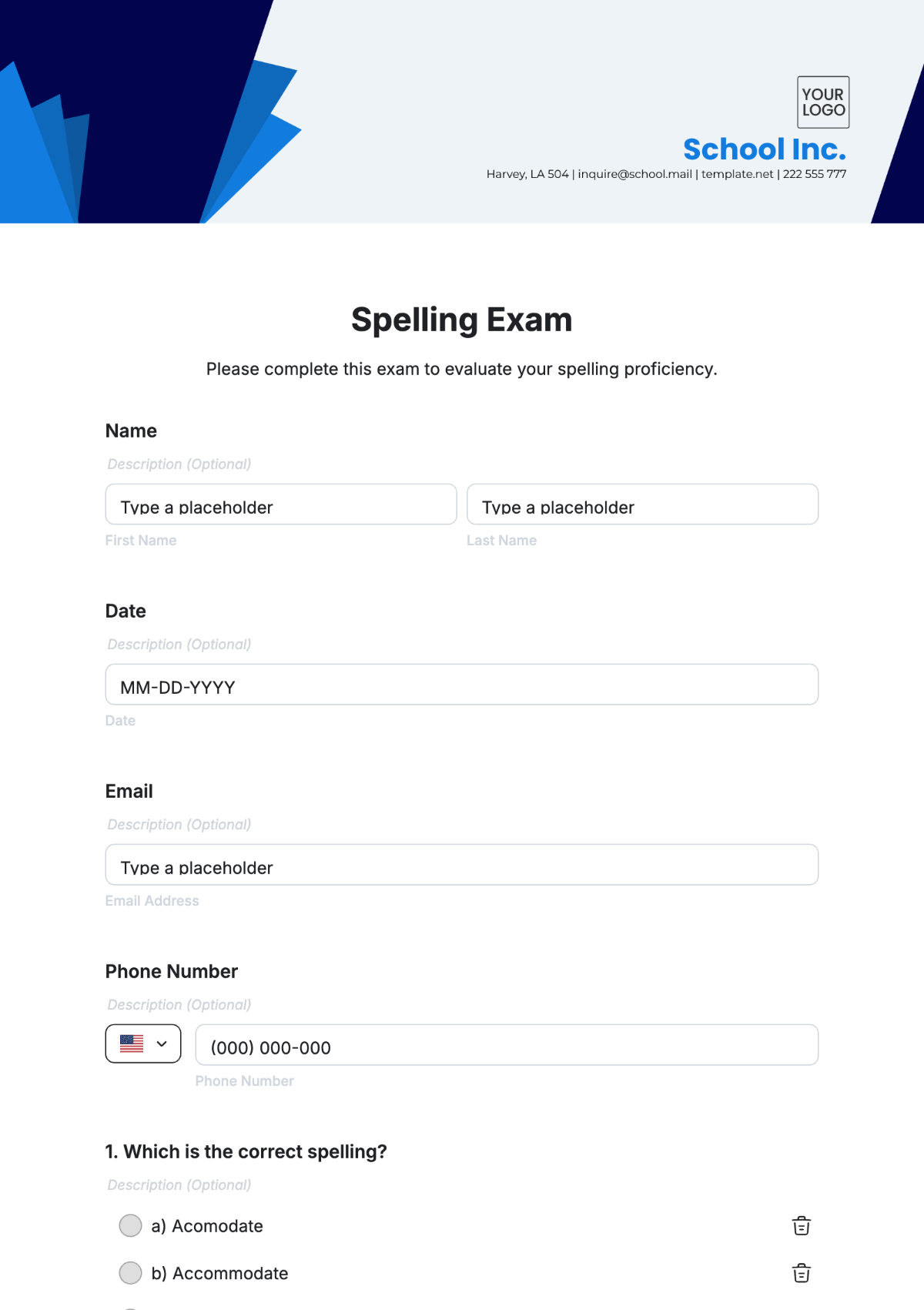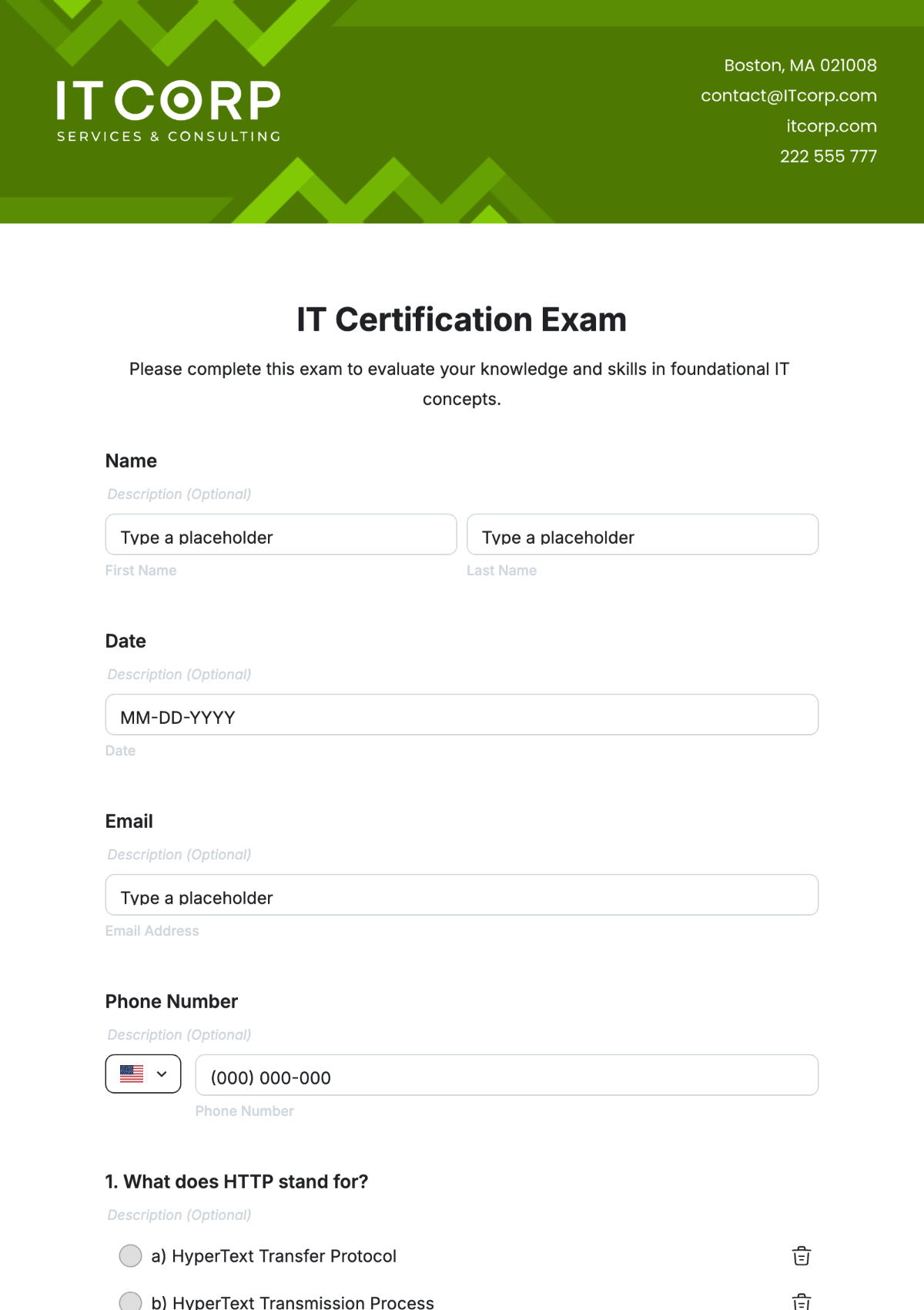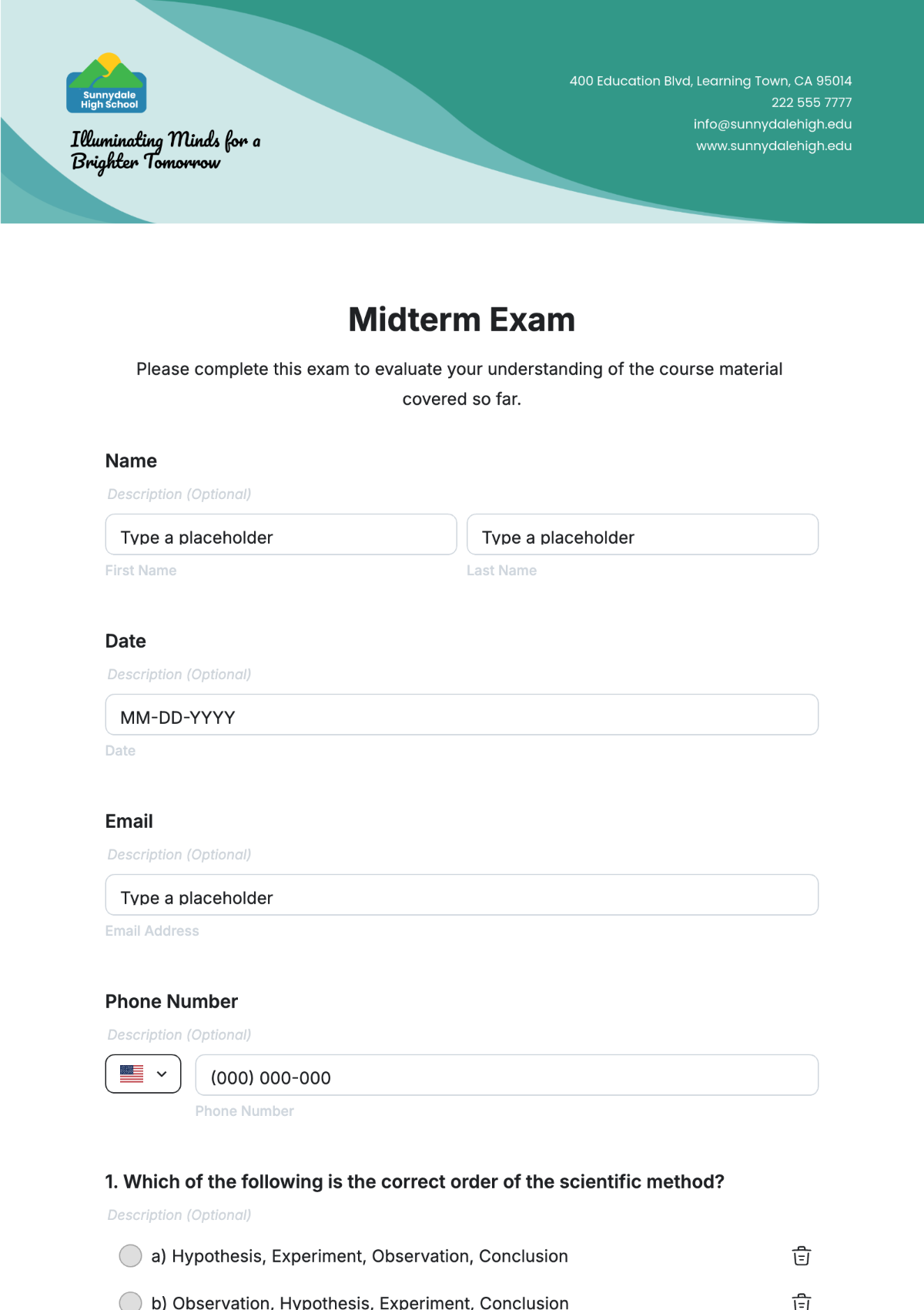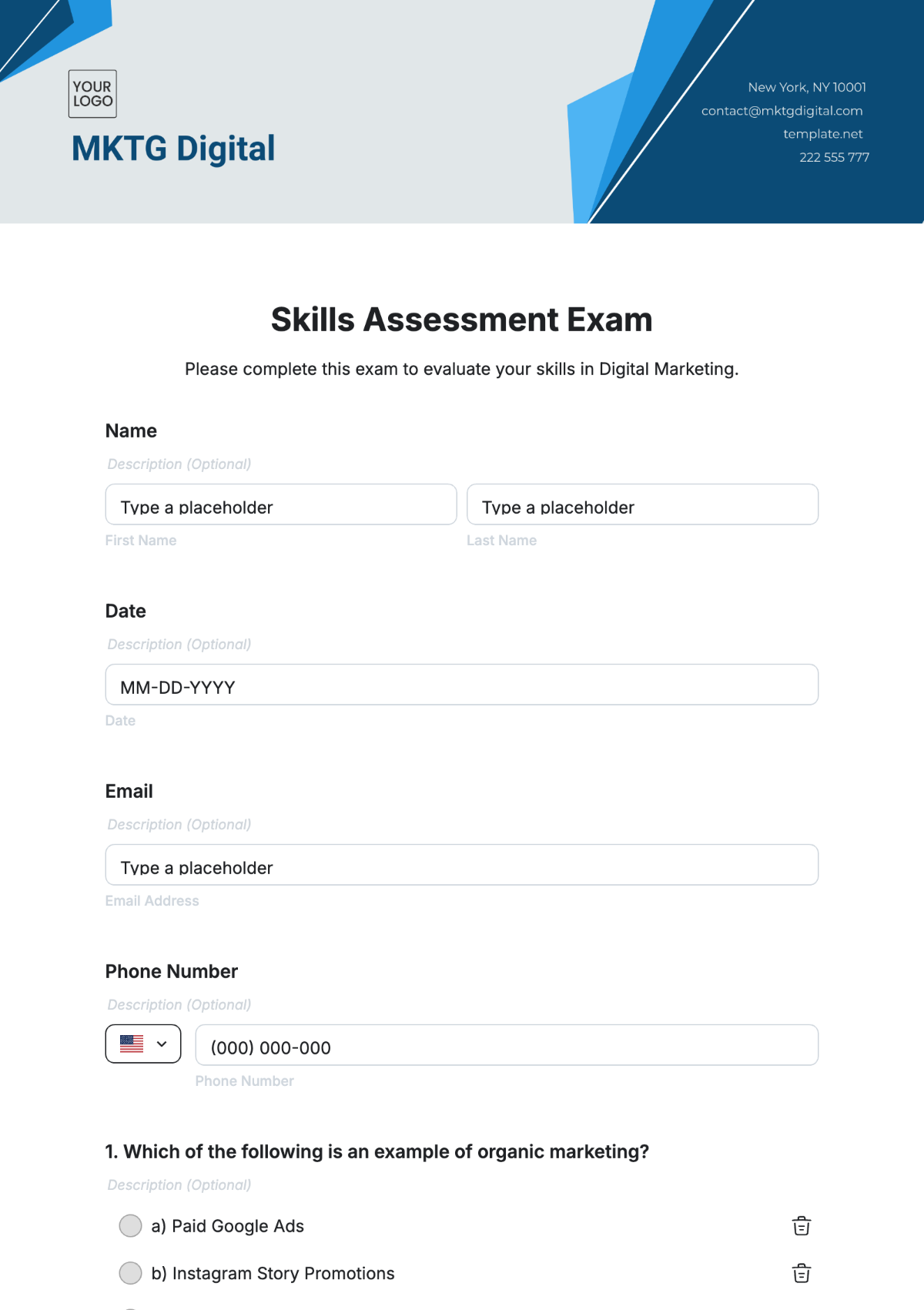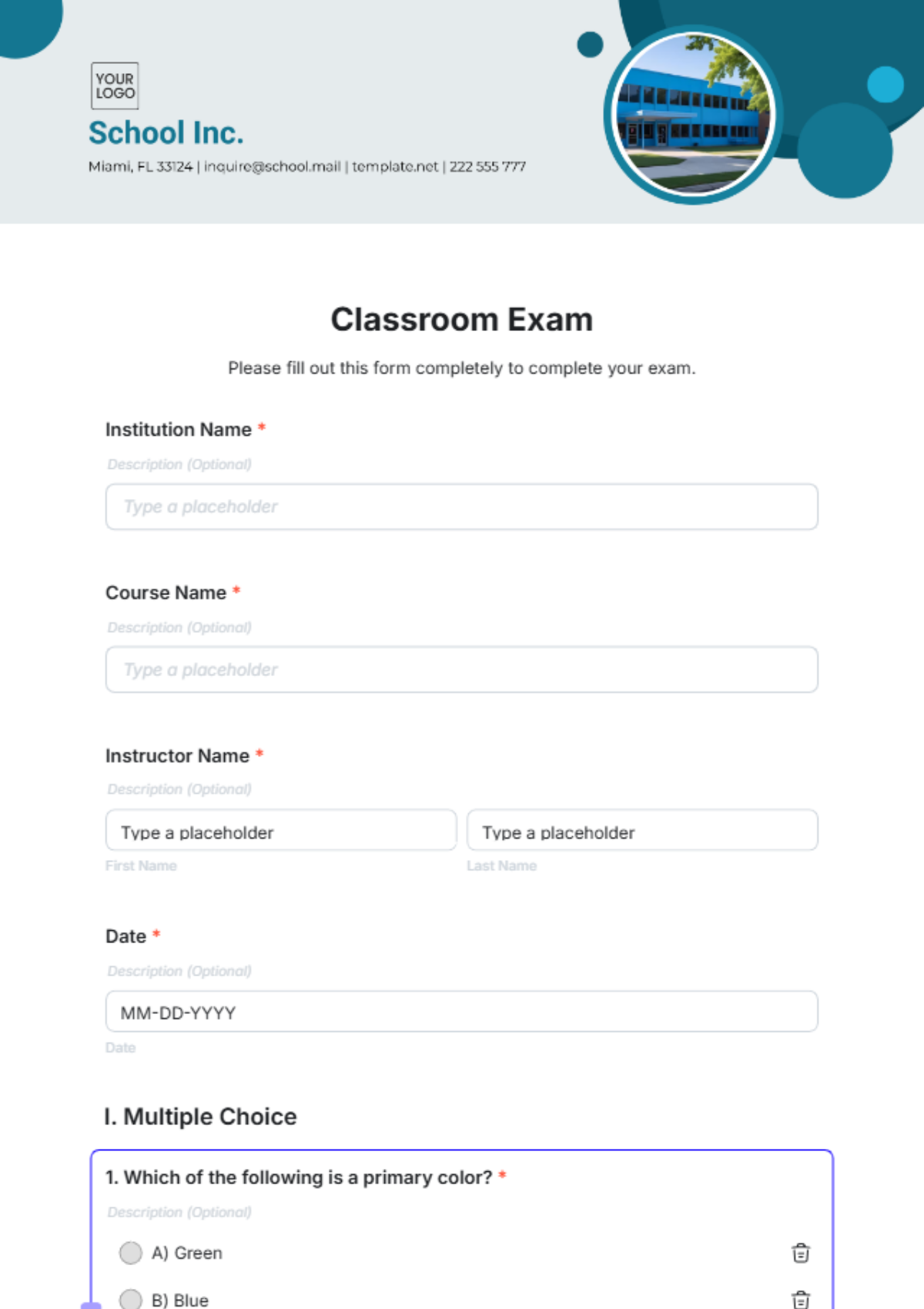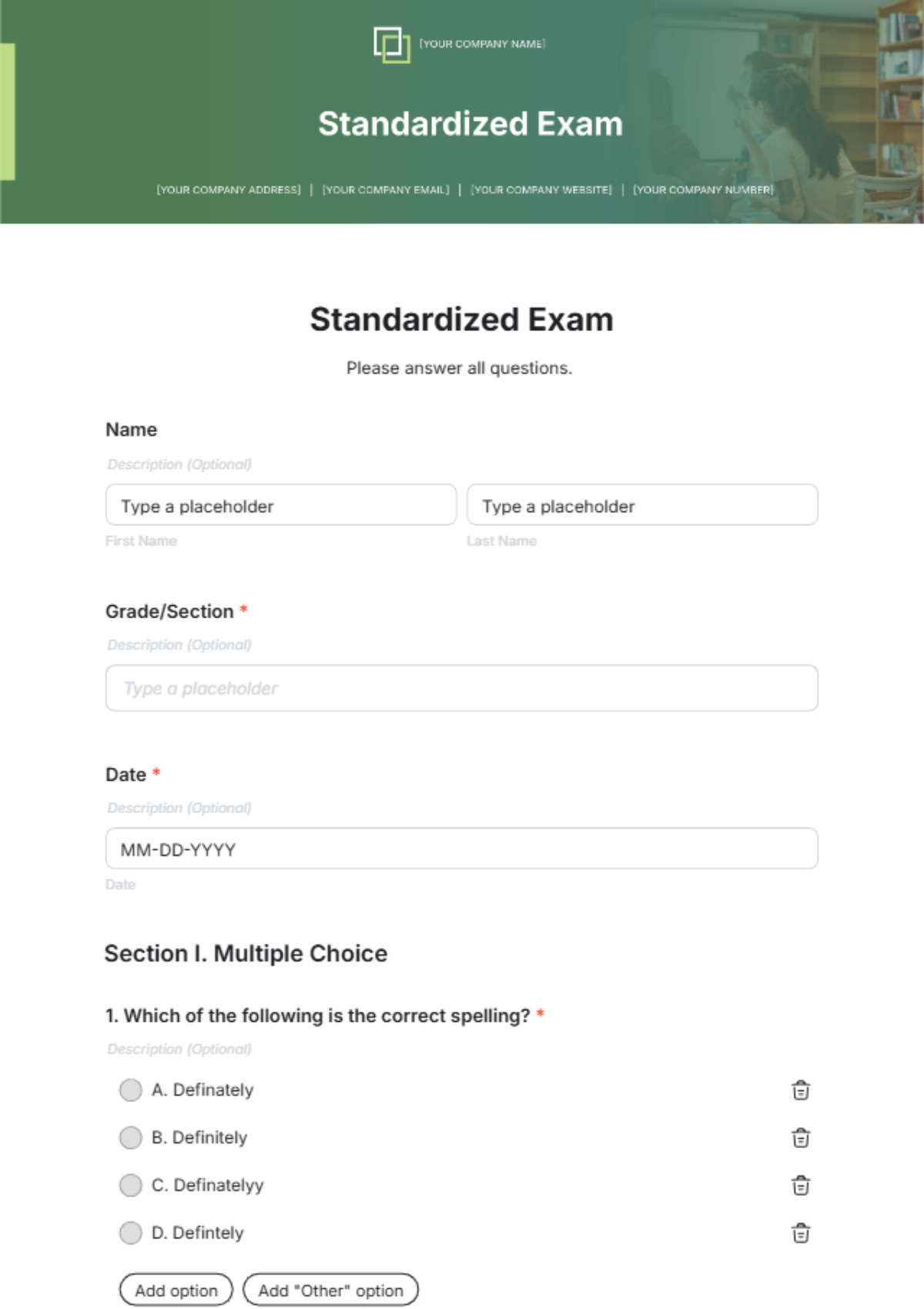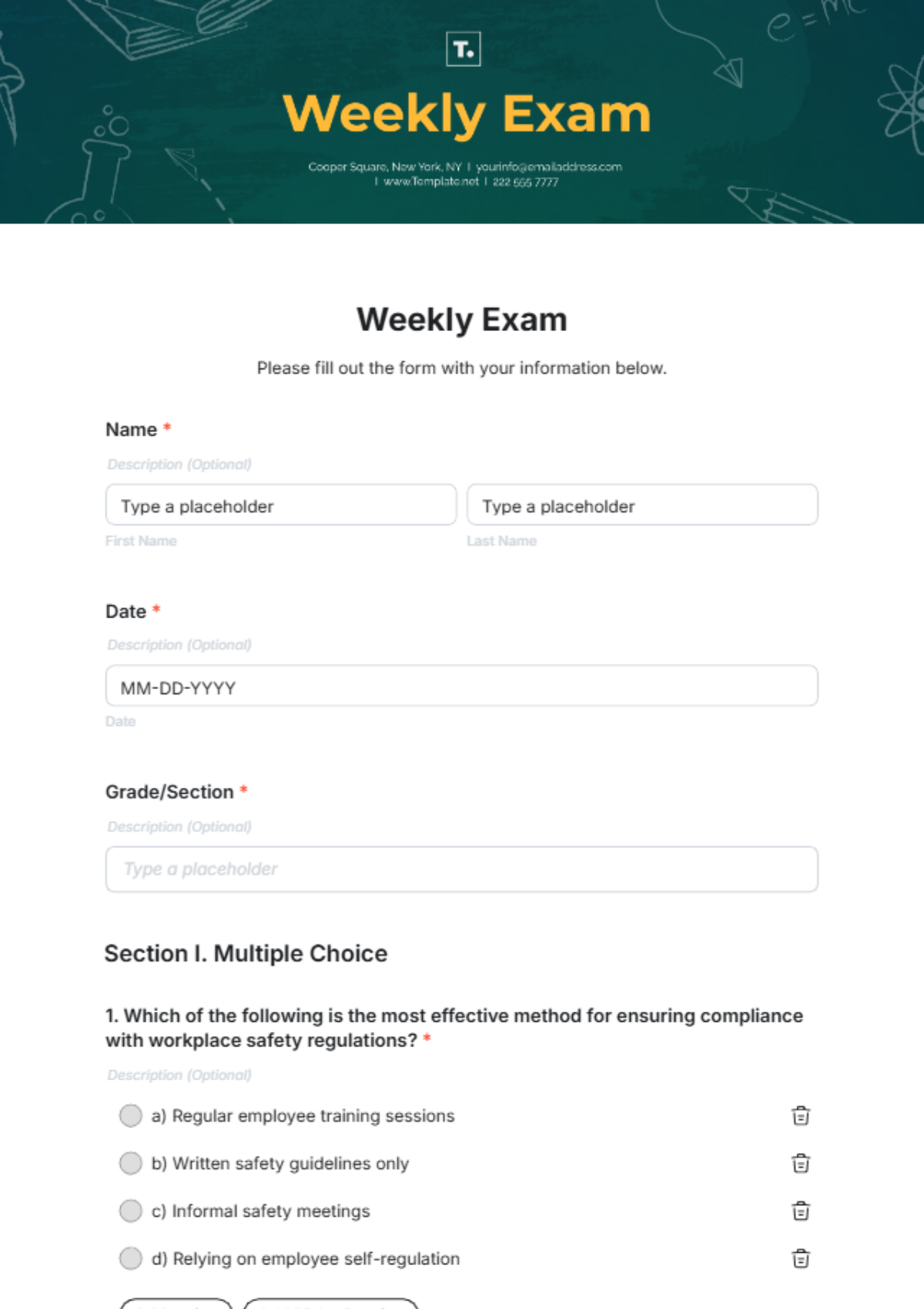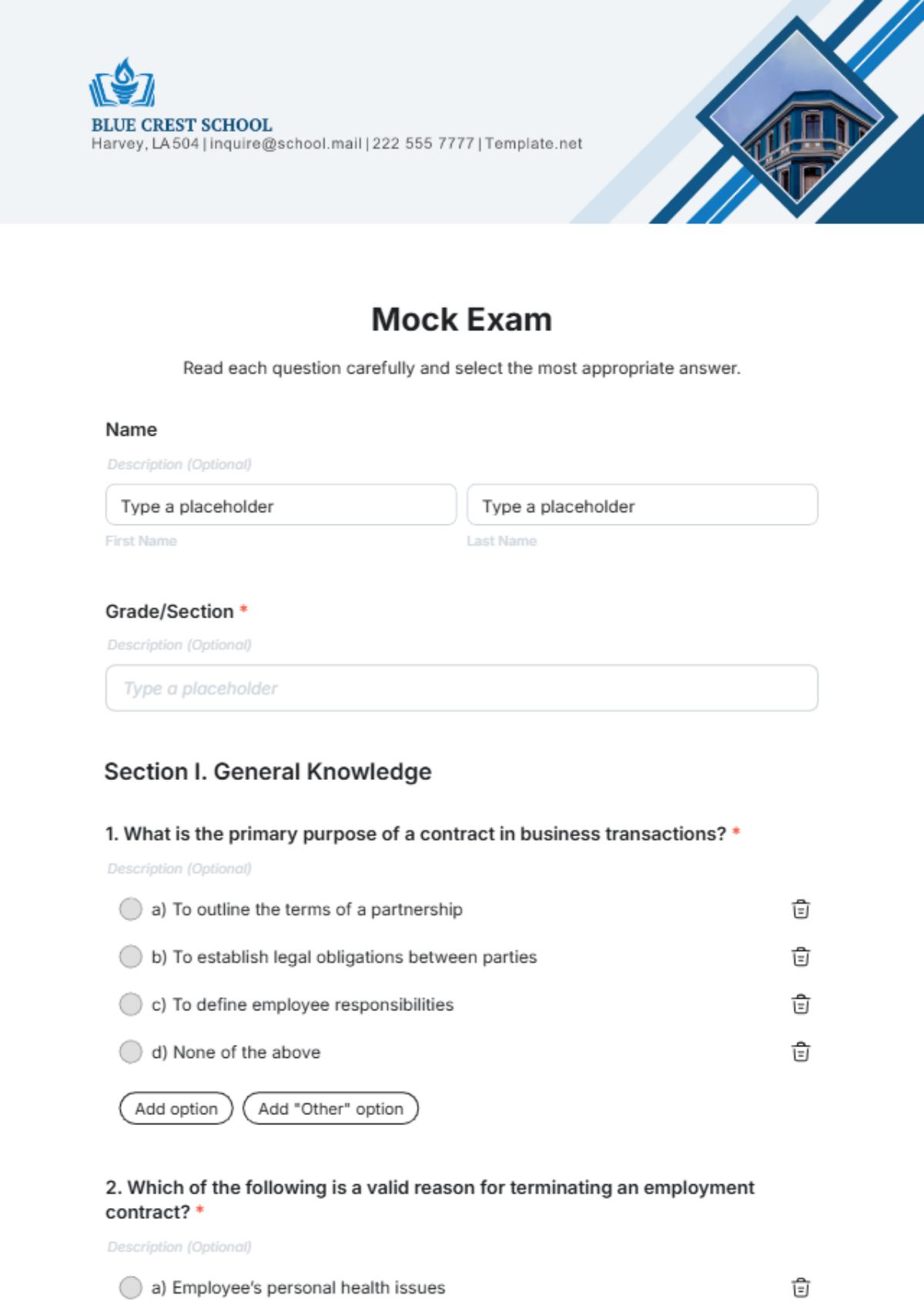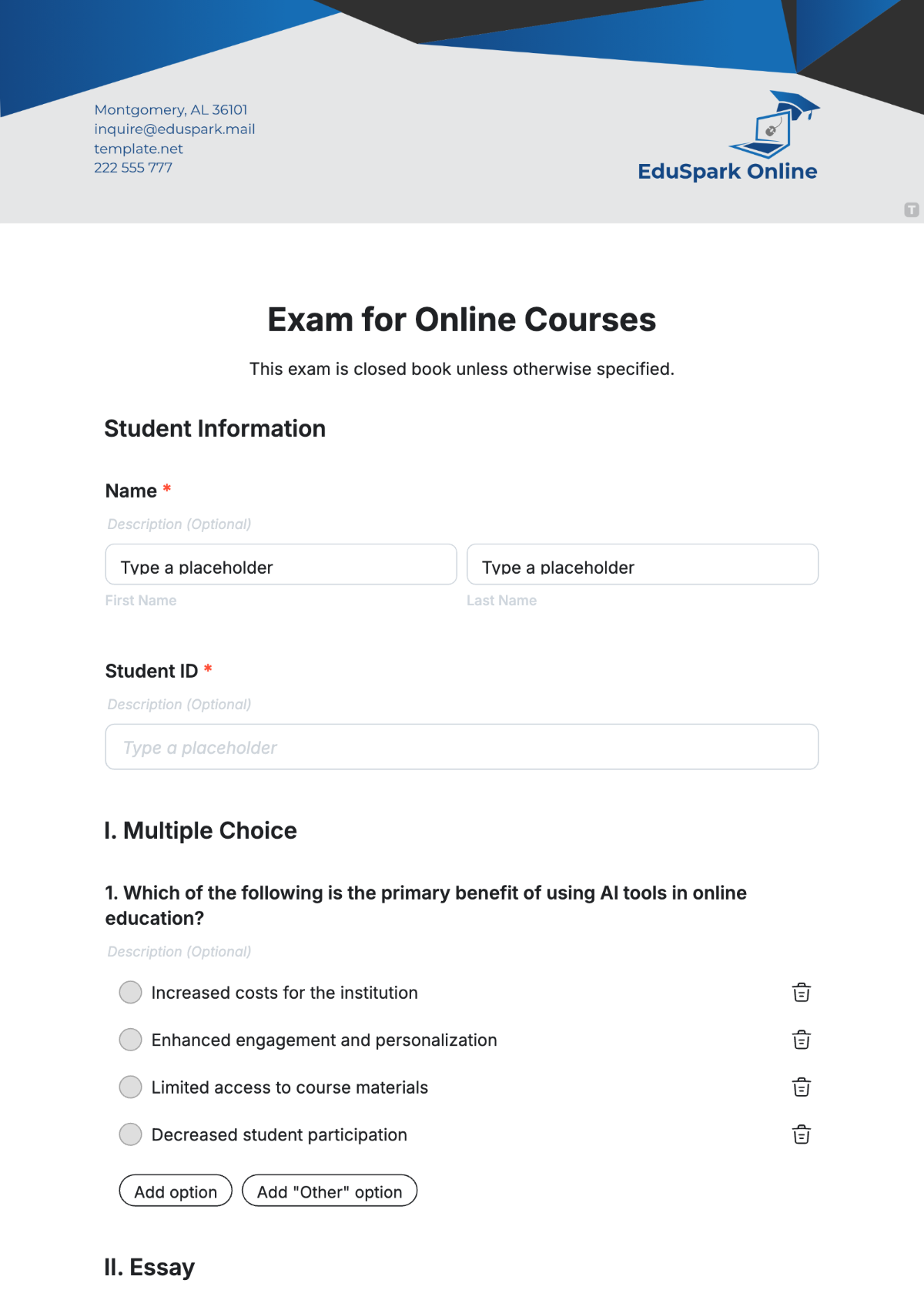Exam Study Guide
I. Introduction
Welcome to the [YOUR COMPANY NAME] Exam Study Guide! This guide is designed to help you prepare effectively for your upcoming exams, ensuring that you approach them with confidence and achieve your desired results. Whether you're studying for a [CERTIFICATION EXAM/STANDARDIZED TEST/ACADEMIC ASSESSMENT], this guide will provide you with valuable strategies and resources to succeed. For any inquiries or further assistance, feel free to contact [YOUR COMPANY EMAIL] or call us at [YOUR COMPANY NUMBER].
II. Understanding the Exam
A. Types of Exams
Familiarize yourself with the format and structure of the [EXAM].
Identify the types of questions you can expect, such as [MULTIPLE CHOICE/ESSAY/PRACTICAL].
Understand the weighting of different sections or topics within the [EXAM].
B. Exam Content
Review the syllabus or exam blueprint to understand the content areas covered.
Identify key concepts, theories, formulas, or vocabulary that may be tested.
Prioritize topics based on their importance and your level of [PROFICIENCY/MASTERY].
III. Study Planning
A. Setting Goals
Define clear and achievable goals for your study sessions and overall preparation.
Break down your goals into smaller, manageable milestones to track your progress.
Establish a study schedule that allows for consistent and structured [REVISION/STUDY].
B. Time Management
Allocate dedicated time slots for studying each day, considering your other commitments.
Use techniques such as the Pomodoro Technique or time blocking to maximize focus and productivity.
Balance your study sessions with regular breaks to prevent [BURNOUT/FATIGUE] and maintain concentration.
IV. Study Strategies
A. Active Learning
Engage with the material actively through techniques such as summarizing, paraphrasing, or teaching.
Use [FLASHCARDS/MIND MAPS/DIAGRAMS] to visualize and organize complex information.
Practice retrieval exercises to reinforce your memory and comprehension of key concepts.
B. Practice Questions
Incorporate practice questions and past exam papers into your study routine.
Simulate exam conditions as closely as possible to familiarize yourself with the timing and pressure.
Analyze your mistakes and areas of weakness to focus your [REVISION/STUDY] efforts effectively.
V. Review and Revision
A. Consolidating Knowledge
Review your notes, textbooks, or supplementary materials to reinforce your understanding.
Focus on areas of weakness or topics that you find challenging.
Use spaced repetition techniques to revisit and reinforce learned material over time.
B. Mock Exams
Take full-length practice exams under timed conditions to simulate the real testing environment.
Evaluate your performance and identify any patterns or recurring mistakes.
Adjust your study plan based on your mock exam results to address areas of improvement.
VI. Test Day Preparation
A. Logistics
Confirm the date, time, and location of the exam well in advance.
Ensure you have all necessary materials, such as identification, exam admission tickets, and stationery.
Plan your journey to the exam venue, accounting for potential delays or [TRAFFIC/TRANSPORTATION].
B. Mental Preparation
Get a good night's sleep before the exam to ensure you're well-rested and alert.
Eat a nutritious meal and stay hydrated to fuel your body and brain.
Practice relaxation techniques, such as deep breathing or visualization, to manage [TEST ANXIETY/STRESS].
VII. Conclusion
Approaching exams with a well-structured study plan and effective strategies can significantly enhance your performance and outcomes. By following the guidelines outlined in this Exam Study Guide, you'll be better equipped to tackle your exams with confidence and achieve success. Remember to stay focused, stay motivated, and believe in your abilities. Good luck on your exams!
